


1 Vol 20 No 49, December 19, 2022 View online at farmersweekly.co.nz $4.95 Incl GST Sixty years in wool 18 We don’t just show farms. We sell them! Even though the rural market is back significantly this spring, we’ve sold as many farms across New Zealand as last year. lf you want your property SOLD, talk to us today 0800 367 5263 | pb.co.nz Property Brokers Ltd Licensed REAA 2008 | PB065314 A life on the land LAND CHAMPIONS
EDITORIAL
Bryan Gibson | 06 323 1519
Managing Editor bryan.gibson@agrihq.co.nz
Craig Page Deputy Editor craig.page@agrihq.co.nz
Claire Robertson

Sub-Editor claire.robertson@agrihq.co.nz
Neal Wallace | 03 474 9240



Journalist neal.wallace@agrihq.co.nz
Gerald Piddock | 027 486 8346
Journalist gerald.piddock@agrihq.co.nz
Annette Scott | 021 908 400



Journalist annette.scott@agrihq.co.nz
Hugh Stringleman | 09 432 8594

Journalist hugh.stringleman@agrihq.co.nz
Richard Rennie | 027 475 4256 Journalist richard.rennie@agrihq.co.nz
Nigel Stirling | 021 136 5570 Journalist nigel.g.stirling@gmail.com
PRODUCTION
Lana Kieselbach | 027 739 4295 production@agrihq.co.nz
Supply to: adcopy@agrihq.co.nz
SUBSCRIPTIONS
0800 85 25 80 subs@agrihq.co.nz
SALES CONTACTS
Andy Whitson | 027 626 2269 Sales & Marketing Manager andy.whitson@agrihq.co.nz

Steve McLaren | 027 205 1456
Auckland/Northland Partnership Manager steve.mclaren@agrihq.co.nz
Jody Anderson | 027 474 6094 Waikato/Bay of Plenty Partnership Manager jody.anderson@agrihq.co.nz
Donna Hirst | 027 474 6095
Lower North Island/International Partnership Manager donna.hirst@agrihq.co.nz
Omid Rafyee | 027 474 6091 South Island Partnership Manager omid.rafyee@agrihq.co.nz
Debbie Brown | 06 323 0765
Marketplace Partnership Manager classifieds@agrihq.co.nz
Grant Marshall | 027 887 5568
Real Estate Partnership Manager realestate@agrihq.co.nz
Andrea Mansfield | 027 602 4925
National Livestock Manager livestock@agrihq.co.nz
PUBLISHERS
Dean and Cushla Williamson Phone: 0800 85 25 80 dean.williamson@agrihq.co.nz cushla.williamson@agrihq.co.nz
Farmers Weekly is Published by AgriHQ PO Box 529, Feilding 4740, New Zealand Phone: 0800 85 25 80 Website: www.farmersweekly.co.nz
ISSN 2463-6002 (Print) ISSN 2463-6010 (Online)
From the Editor
Champions rise to the challenge
Bryan Gibson Managing editor
THIS past year has been defined by issues.
Emissions pricing, covid-19, the war in Ukraine – all of these things and others have added up to create a headache for food producers.
How best to deal with these mounting challenges has divided the sector and we’ve had friction on a scale not seen for some time.
So, it’s easy to forget, as we debate the issues, that it’s people who make the farming world flourish.
Our industry is successful because of the people who innovate, strategise, empathise and build communities.
A life on the land is a tough journey, but it’s one that many navigate with ambition, intellect, humour and collaboration.
These people are our land champions and we celebrate them this week.
The news is often filled with familiar faces saying familiar things.
Industry leaders, politicians, advocates and agitators all require attention and scrutiny.
This edition highlights the people in the engine room of farming. These people, and thousands more like them, are the reason we’re the best in the world at what we do.
So as the festive season begins, take the time to reflect on the people in our communities who work tirelessly to improve our industry, bit by bit.
Without them, and you, New Zealand would be a very different place.
It has been a privilege to report on the farming world this year and the AgriHQ team thank you for allowing us into your homes each week.
Have a safe and fun-filled holiday season.
Back in 1860, exporting meat to the other side of the world seemed about as easy as nailing gravy to the ceiling. But a few determined kiwis took the bull by the horns and now our grass-fed beef and lamb is sought-after all around the globe.
At AFFCO, we see the same pioneering spirit alive and well in farmers today. We’re playing our part too – exploring every opportunity to take New Zealand’s finest farm-raised products to the world.
WWW.AFFCO.CO.NZ | 0800 233 2669 our pioneering spirit tells us nothing’s out of reach WAVE200472 AFFJ200472 NZ Farmers Weekly Strip Ad FA.indd 1 24/08/22 3:22 PM 2 New Zealand’s most trusted source of agricultural news and information Contents Advertise Get in touch DAY BY DAY: Rosie Dalton of Derbyshire in the UK joined her family in turning a tragedy into a way to help others with a fundraising calender showing a year on farm. STORY P20 News . . . . . . . . . . . . . . . . 3 Land Champs . . . . . 4-19 World . . . . . . . . . . . . . . 20 Real Estate . . . . . . 21-25 Marketplace . . . . . . . . 26 Livestock . . . . . . . . 27-29 Markets . . . . . . . . . 30-35 Weather . . . . . . . . . . . . 36
ADVERTISING MATERIAL
PRINTER Printed by Stuff Ltd Delivered by Reach Media Ltd
Alliance slams ‘flawed’ carbon offsetting policy
Wallace NEWS Lamb

NEW Zealand’s largest sheepmeat exporter is warning that a shortage of pinus seedlings is the only factor limiting unheralded growth in forestry by companies offsetting their carbon emissions.
Alliance chair Murray Taggart told the co-operative’s annual meeting in Timaru this week that the current government’s reluctance to cap the amount of permitted offsetting by exotic forests will be its most significant legacy, “and it will not be a legacy anyone will be proud of”.
NZ stock numbers are continuing to fall, which Taggart attributed in part to policies that distort land use. NZ, he said, is possibly the only country in the world that allows unlimited offsetting.
California limits it to 8% of emissions and Europe 10%.
“Essentially our government is
saying it’s okay for carbon emitters to avoid addressing their carbon footprint by unlimited offsetting,” Taggart said.

“Rural communities are bearing the brunt of this flawed policy as more and more farms convert to carbon farming.”
The Alliance Group announced record profit before provisions, distribution and tax of $117.2 million for the year ending September 30 2022, off record turnover of $2.2 billion.
The co-operative is making a $11.3m profit distribution to its farmer shareholders and, in addition, a $10m bonus share issue.
Its after-tax profits over the past five years have averaged $23m.
Taggart said that is positive, but remains well below what is necessary to deal with business legacy issues while also meeting farmer expectations of capturing more value for livestock.
Taggart said he doubts anyone envisaged the combination of events that shaped 2022.
“Drought conditions in

Southland were fortunately offset by an extremely wet summer in Canterbury and further north, resulting in a record 1.3 million animals being moved through the Alliance store stock scheme, all at zero commission to the farmer.”
While covid didn’t require a plant to close, meeting demands for killing capacity proved challenging with large numbers of employees either home sick or isolating.
Taggart welcomed the government agreeing to practical changes to winter grazing regulations and, after initially ignoring aspects of the He Waka

Eke Noa proposal, agreeing to changes he considers common sense.
Global logistics remain challenging, especially the reliability of refrigerated container shipping.
Balance sheet equity improved to 56.2%, but Taggart said those global logistics challenges hampered the company’s ability to ship inventory, which in turn slowed the cash cycle in the business.
Despite this, operating cashflow was strong with a $120m
improvement over last year.
Taggart praised the performance of chief executive David Surveyor, who is retiring after eight years, saying he achieved every measure he set himself: financial performance, revenue growth, livestock supply and improved farmer returns, engagement organisational capability and safety performance.

“Looking across the five criteria for business success that David set himself eight years ago at his interview presentation, it is clear that he has met every one.”
Milk prices due to settle down, says ANZ
Stringleman MARKETS Dairy
AFTER the farmgate milk price excitement of the past year, ANZ dairy analyst Susan Kilsby is picking moderately good prices for both the current season and in 2023-24.

global economic conditions and reducing demand for dairy products, offset by weak dairy supplies.
“Dairy commodity prices have deteriorated since our last forecast update but this downward trend in pricing was anticipated and allowed for in our forecast,” Kilsby said.
their current levels of US$3450/ tonne for whole milk powder.
The rise in interest rates is pushing up the value of the NZD as it attracts inward flows of capital.
“This year drought curbed output in both Europe and the US during their summer months.
WEAK
milk supply is not showing any signs of increasing signi cantly in the short term.
She forecasts $8.75/kg this season and $9 for next season as the recent deterioration in dairy commodity prices and some movements in the New Zealand dollar are factored in.
Assumptions include worsening
“There are now signs that global dairy commodity prices may stabilise near current levels, and if this occurs then this forecast of $8.75 will be achievable.”
Regarding the following season, the $9 forecast assumes that commodity prices remain around

Presently weak demand and weak supply figures are balancing themselves, but ANZ said at some point these forces will become less balanced.
“Global milk supply is not showing any signs of increasing significantly in the short term.
“This may change by about May when the big northern hemisphere milk-producing regions reach their seasonal peak in milk supply.
“Therefore, if weather conditions normalise then some increase in output could be expected at that point.
“Global demand for dairy products is still weak and is expected to remain so throughout 2023.
“Global economic conditions are worsening, which is limiting demand for dairy products, particularly amongst consumers who view dairy as a luxury good rather than a staple food.”
Need Help? Give us a call on 0800 787 254 www.rural-support.org.nz Rural people Supporting rural people FARMERS WEEKLY – farmersweekly.co.nz – December 19, 2022 News 3
UP A TREE: Alliance chair Murray Taggart says rural communities are bearing the brunt of the policy as more and more farms convert to carbon farming.
Neal
Essentially our government is saying it’s okay for carbon emitters to avoid addressing their carbon footprint by unlimited offsetting.
Murray Taggart Alliance Group
Hugh
SUPPLY: ANZ dairy analyst Susan Kilsby says global
Provenance is key for wool’s biggest fan
You’d travel a long way to get stronger supporters of New Zealand’s wool industry than Patrizia Vieno and Rod Clutton of Tinui.

can’t beat it,” she said. “It has everything. It is sustainable, renewable, recyclable, eco-friendly and compostable.
PATRIZIA Vieno and partner Rod Clutton have already appeared in Farmers Weekly having won the Greater Wellington Ballance Farm Environment Awards this year.
That was as well as winning the Bayley’s People in Primary Sector Award, the Norwood Agri-Business Management Award and the QE11 National Trust Farm Stewardship Award.
The Italian interior designer and British intensive sheep and beef farmer are passionate about farming and you’d travel a long way to get stronger supporters of New Zealand’s wool industry.

In 2011 Patrizia and Rod purchased Rewa Rewa station, a 988ha hard hill country property just North of Tinui and to the East of Masterton. Of that 620ha are effective with just 14ha of flats. The station runs 4300 Romneys and 140 Angus cattle. In addition they recently planted 200ha of pine trees and have 60 cashmere goats for both weed control and fibre.
They also have 60 coloured sheep running in small flocks of Polwarth, Romney Cross Corriedale and Gotland. Finally, they have Angora Goats, Alpacas and Highland cattle.
When Patrizia came to Wairarapa she wanted to learn to spin and joined the local spinners and weavers.
Local matriarch Phyllis French not only taught her how to spin but took Patrizia under her wing and sold her some coloured sheep.
Patrizia would be the most passionate supporter of NZ wool I’ve struck. The Italian pocket rocket has energy to burn and can certainly operate outside the square.
“Wool is a natural fibre – you
“Add to that it is self-cleaning, insulating and a fire retardant, storing 50% more organic carbon than other fibres. It is a miracle product.

“It can come naturally coloured or we can dye it using natural dyes.”
Because wool was so cheap Patrizia decided to use white Romney lambs’ wool to make blankets. They contain nothing that is artificial, just wool for the product and either cotton or leather for the labels.
The blankets use wool grown in the Wairarapa, scoured in Napier, spun in Lower Hutt and woven in Auckland.
They are double woven and reversable.

“The blankets are a product of the North Island and have a low carbon footprint.”


When it comes to the sustainability of wool, Patrizia is passionate and she has done her homework.
“Sixty percent of all clothing comes from fossil fuel. People talk about reducing our greenhouse gases but happily wear polyester clothing.
“No one seems to worry about it and they should.
“It’s a bit like fast food. People don’t worry about where it comes from and when the packaging is
discarded it goes to the tip and is there forever.
“In 2020 only 1.7% of all clothing came from natural fibres, that’s wool and silk. Compare that with 68.2% for synthetics. You can add a further 6.5% from man-made cellulosic product (viscose, rayon etcetera) where manufacture is banned in the USA because of the pollution the manufacturing process creates.
“What that has achieved is the pollution of 20% of the world’s drinking water that is caused by production of artificial fibres and dyes.
“We’re manufacturing and selling twice the amount of clothing today we did 15 years ago and that isn’t sustainable.
“We need to think of the planet, which means we need natural fibres.”
“We’re currently developing woollen socks using worsted yarn instead of the polyesters that are in most socks sold today.”
Patrizia’s creed for Rewa Rewa wool is simple: provenance and traceability. That means what is on the label is in the product.
She has started doing courses on wool and wool processing.



They have purchased a Canadian mill to wash, card and spin on site.
Rewa Rewa has its own looms so they can sell wool yarn, clothing and home wares.
The Canadian mill can do smaller lots than conventional machines, meaning the processing can be tailored to the end product more easily.

The mill will also mean the fulltime employment of two Tinui locals.
Patrizia also intends running courses in natural dyeing.

On the wider farming scene Rewa Rewa is part of Beef + Lamb NZ’s Open Farms, where they get a good crowd up from Wellington and show them dogs working, sheep shearing, the benefits of wool and the farm itself.

Currently they’re selling store lambs, which they are reevaluating as they feel nervous being at the “mercy of finishers”.
Patrizia would like to have an export abattoir in Tinui as there would be less travel and with it less stress on the animals. She

also believes her “provenance and sustainabilty” mantra would be better served by a small, local operation.







The couple have developed a farm stay from the old shearers quarters, which is both impressive and unique.
“Tourism has great potential for us.”

Patrizia was raised in Italy and spent 15 years in the UK before immigrating with Rod to New Zealand.
They purchased a campervan and drove around the country, finally settling in Tinui.
She is a person who thinks outside the square and sees opportunities where others see problems.
Both Patrizia and Rod are New Zealand citizens.
The farm isn’t an easy property to work being pretty harsh hill country. It is relatively isolated, a good 45 minutes from Masterton. What it has achieved is to create a flourishing operation that promotes and markets NZ wool in a variety of forms, highlighting its sustainability and versatility.
w w w s h e e p m e a s le s c o n z 0 8 0 0 2 2 2 0 1 1 You can help reduce sheep measles TAKING DOGS ON OR NEAR FARM LAND THESE HOLIDAYS? Maximum protection = Monthly dosing Sheep Measles are caused by a tapeworm. Cysts cause undesirable blemishes in sheep meat These cysts can disrupt the lamb export market and cost our farmers and processors financially! Dose all dogs with Praziquantel at least 48 hours prior to arrival Merry Christmas! 4
Alan Emerson PEOPLE Fibre
EVERY FIBRE: Rod Clutton and Patrizia Vieno, a passionate supporter of New Zealand wool.
Sixty percent of all clothing comes from fossil fuel. People talk about reducing our greenhouse gases but happily wear polyester clothing. No one seems to worry about it and they should.
FARMERS WEEKLY – farmersweekly.co.nz – December 19, 2022 Land Champions 4
Patrizia
Vieno Rewa Rewa
Fifty years of standing her ground
Helen Miller has experienced more than her share of adversity, but the Riversdale sheep and beef farmer has shown that she thrives under pressure.
those days you didn’t live together, you got married”.
DETERMINATION, perseverance and just a hint of stubbornness – whatever the traits, it has been a successful formula for Helen Miller.
The 84-year-old has just notched up 50 years as a Hereford cattle breeder out of her Pyramid Downs Stud, near Riversdale in northern Southland.



She and farm manager Geoff Speden have forged an enviable reputation for their quality stock, and regularly sell bulls to clients throughout the South Island.
But for Miller, success has come the hard way.
In 1968, while in the maternity hospital with her week-old son, she learnt her husband John had been killed in a road accident, not that far from the family farm.
It was a huge shock, Miller said in her typically understated way.
They spent their honeymoon following the rodeo circuit in the North Island, where her husband competed as a bronco rider.
Miller’s world was turned upside down after the accident in late 1968. But she had no option but to regroup quickly and make some life-defining decisions.
Once the decision was made to stay on the property, Miller went in search of a farm manager. Two managers came and went in a relatively short time before she employed Speden in 1972.
He had previously worked on a Hereford stud and, with Miller keen to get cattle onto the property, it seemed a good match.
“I wanted to do something with the farm. My father had Angus cattle and I never trusted the blighters,” Miller said.
She initially purchased 10 in-calf Hereford heifers, which weren’t registered.
Over the years Miller added
Over the years the farm has fluctuated in size, from about 320ha at its peak to the 240ha it is today. Alongside Hereford cattle, they run about 800 perendale ewes. The Waimea Plains Railway ran through the property up until its closure in the early 1970s and Miller was eventually able to obtain the rail corridor, which became part of the farm.
Most people in their 80s would be eyeing a quieter life, but that is not for Miller.
“I belong to a women’s club simply because the people that nominated me said that I live in a male-dominated world and it would be good for me to go to club functions.
“But I find it a bit boring. Everyone knows what one another is doing. That drives me mad.
“I never tell anyone what I’m up to. I do what suits me, when it suits me.”
A widow with two young children – Rachel and John – in tow, Miller had to decide whether to make a go of the farm or cut her losses and move on .
She said pressure came from some quarters to sell the property.
“The more the pressure was on, the more determined I got that I was not leaving my new house.
“One of the worst parts was I had no car. We had an old 47 Chevrolet truck here. My family tidied it up for me to get around in.”
Miller and her husband had met at a local dance and after a threeyear engagement they married. By that stage they had already bought the farm and built the home that Miller still lives in today – “but in
to her stock numbers by handpicking quality animals and creating the well-respected stud she has today. She said Speden has been invaluable in helping develop the line of Hereford cattle.
“I’ve learnt a lot. But I have had to learn a lot.”
The key to a good bull is its “structure, temperament, good feet and I’m very particular about them having length of neck”.
Miller said it was at times tough finding a balance between raising children and running the farm.

“It was more difficult when they got to be teenagers. They wanted to go and do the things that their friends were doing.
“But I just had to manage.”
The grandmother of four remains active and sprightly. She is still quite capable of clambering over sheepyards or jumping in the ATV to inspect the farm. The only concession is “I don’t have the energy to mow my own lawns any more”.
Part of her secret to keeping fit, she said, is shying away from alcohol.
“Some people think it’s fashionable to have a glass of wine when you’re out or at home in the evening. I tell people I haven’t had an alcoholic drink in 15 years, although it’s probably 20.”
Outside of farm life, Miller has a passion for antiques.
She purchased her first piece – a Victorian sofa that still takes pride of place in her home – when she was 21, and was hooked. There aren’t many antique stores in the South Island Miller hasn’t visited, or purchased from.

5 FARMERS WEEKLY – farmersweekly.co.nz – December 19, 2022 Land Champions 5
NO BULL: Helen Miller has been breeding Hereford cattle for 50 years. Photos: Natasha Chadwick
She now runs a small antiques and collectables shop from her own property, admitting that she has “far too much” stock. Through the good times and
bad, Miller has embraced her time on the land and, at this stage, has no plans to move from her farm. After all, she said, “life has to have a purpose”.
CHINA SHOP: Helen Miller has a passion for antiques and runs a shop from her farm.
STAY: Helen Miller with her dogs Bob, left, and recent arrival Camy.
DRIVER’S SEAT: Helen Miller remains active around her 240ha farm.
The more the pressure was on, the more determined I got that I was not leaving my new house.
Helen Miller Place
Craig Page PEOPLE Sheep and beef
The connection between life and land is powerful
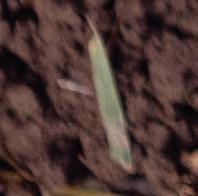
As the world changes, we’re getting ready for the needs of future generations.
We’re driving new ideas, fresh thinking and smarter technology for the sustainable growth of your farming business.




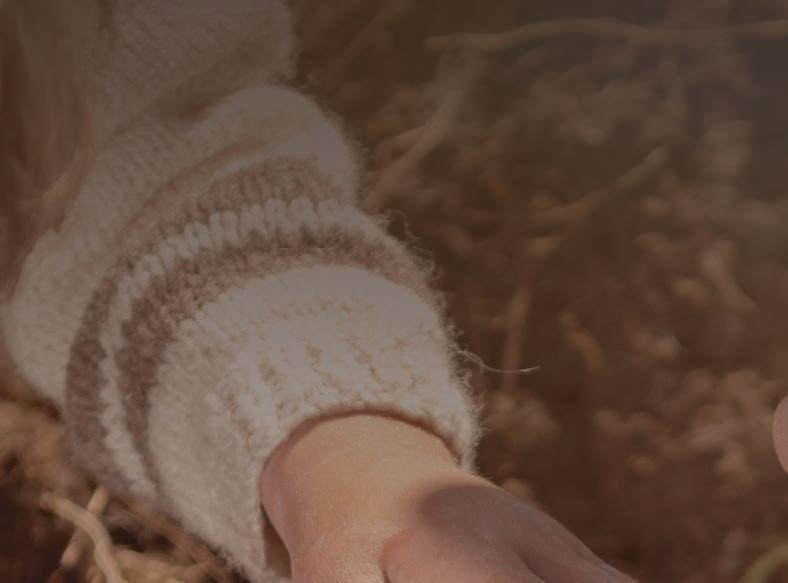
Smarter farming for a better New Zealand®






RAV-19DEC-FW 6
0800 100 123 ravensdown.co.nz
‘Do the best you can and never give up’
Northland dairy and beef farmers Geo and Jo Crawford were the 2022 Ballance Farm Environment Award supreme winners in their province, showing that large-scale dairy farming in the challenging Hikurangi ood control scheme can be environmentally sustainable. But that’s not all Geo gives back.
can’t be bothered with the compliance load.
GEOFF Crawford led on the rugby field for Northland from 1988 to 2001 and he has represented New Zealand several times in world and Pacific spearfishing championships.
If he wasn’t already busy, Geoff was recently elected to the Northland Regional Council, on his reputation and community standing.
Over 30 years Geoff and Jo have built a farming business of three dairy farms totalling 505ha effective and 1400 cows and two beef-rearing and finishing farms integrated with the dairying.

The road to the farming enterprise began with agricultural contracting after leaving school, followed by forestry site management employing up to 80 people at peak.
With his unique drive and demonstrated success, Geoff has employed, advised and mentored dozens of young people.
Jo has reinforced his energy and entrepreneurial skills with care, encouragement, accounts management and community nursing.
“We wouldn’t have a business without great people working alongside us.
“Motivating people to join us on the journey is how we got to where we are today,” they said at the national farm environment awards event in Christchurch in late November.
“We have had many team members over the years who have become friends and gone on to be successful in their own ventures and it is a great feeling to be part of their journey and know we have made a difference in their lives.”

Widespread disillusionment among older farmers comes around every 40 years or so, currently affecting those who
“There is more opportunity now than I have ever seen before for young people who can think differently,” Geoff said.
“People are lined up to give young people a start and encourage them.
“They can work for wages, take on responsibilities, contract milk and then within 10 years be able to buy a herd.
“You have to dream of farm ownership, and you will never get there unless nothing else matters more.”
Geoff said the very best decision he had made in life was marrying Jo because they are so complementary in skills and in outlook.
Hikurangi scheme, and another combination some 20km away at Byles Rd to the north of Hikurangi township towards Whananāki.
The Crawfords have contract milkers on their dairy farms, not share milkers.
This season the contract rate went up by 40c/kg and the contractors have above-average earnings with the focus on performance and production.
“We don’t want money to be the reason they work for us or leave our relationships,” Geoff said.
Owning all 1400 dairy cows means that all calves are reared and retained for the complementary dairy and beef farming operation.
A local woman is employed as a calf rearer and Geoff looks after the beef farming side himself.
He is also very keen on summer maize cropping, pasture renewal and trialling different species, doing most of his own tractor work like power harrowing and oversowing.
They bought a dairy farm on Crane Rd, Hikurangi, 27 years ago and still live there. The land has been very much improved with new pastures, fencing, tracks, native planting, drainage, a wedding venue and a QE11 covenant over 25ha of bush on Parakiore mountain.
Some 20 local landowners have joined the Pest-free Parakiore Programme to trap possums and mustelids and create the conditions for the re-introduction of kiwi.
Typical of the Crawford’s community spirit has been 10 years of grazing heifers on 35ha of Māori-owned land close to home at Ngāraratunua Marae, cleaning up the weeds, repairing fences and installing stock watering.
Two more dairy and associated beef farms are about 5km as the crow flies west across the

Buying a large dairy farming operation seven years ago within what is known locally as the Hikurangi Swamp is the riskiest decision the Crawfords made.
“After the recent flood which damaged 150ha of pastures, you question your fortitude,” Geoff said.
“But research showed the property had the second-best farming soil type in Northland and it has a fantastic infrastructure, which money couldn’t buy now.

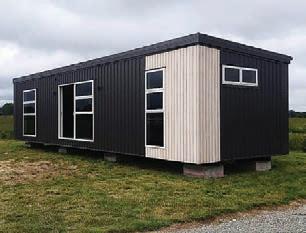


“When things are going well it is a great place to own, but setbacks come along.

“I probably underestimated the mental and financial costs of big floods, even after farming within the swamp on a smaller scale for decades.
“It is times of stress when your leadership qualities have to come to the fore.

“It has been the most mentally taxing experience of my life, but I have learnt a great deal.”
Regularly resowing after floods
with alternative species, along with making choices of varieties, machinery, techniques and timing, has increased Geoff’s farming skills.
He is a spokesperson for the scheme, liaising with the Whangārei District Council, which manages the 60-year-old scheme.

The pumps, stopbanks and spillways all have to be maintained and repaired after adverse weather events because the 5000ha scheme is the flood collection for 45,000ha upstream hill country and the delayed release mechanism for the giant Wairoa River catchment extending westwards to Dargaville and the Tasman Sea.
Annual production from the whole scheme area is estimated to be $50 million, underpinning the viability of the nearby Fonterra Kauri dairy factory.

“A big flood might cost us $500,000 in lost production and restoration, but if our farm is doing 20% more milk production than the best in Northland, then it
is worth it.
“The day I start complaining about Hikurangi flooding is the day I should be looking to sell out.”

The Crawfords were early adopters of DNA testing of all cows and their calves, to target the best milkers for replacement heifer calves when combined with sexed semen.
After the breeding decisions for replacements are made, other cows are artificially inseminated with beef sires, Angus, Hereford and lately Belgian Blues, after which Belgian Blue bulls from Sir Lockwood Smith are run with the cows.
The judges for the Farm Environment Awards were very impressed by the energy, drive and achievements of the Crawfords.
They always have goals to strive for but they also concentrate on great experiences, not purely profit.
“Always do the best you can, as it always works out. Never give up,” said Geoff.
Call in and see us today, 418 Landsborough Road, Timaru ✔ ✔ • Fully transportable. Custom plans. • Modern design and materials. • Upgradeable fittings and fixtures. M 0274 159 251 E jason@johnsonbuilding.co.nz W johnsonbuilding.co.nz/relocatables Relocatables – that‘s your answer! Need a cost effective solution to housing, office or farm house needs? LK0114263© 7 FARMERS WEEKLY – farmersweekly.co.nz – December 19, 2022 Land Champions 7
CHALLENGING: Every day brings challenges and motivation to Geo and Jo Crawford, Northland’s farm environment champions for 2022. Photo: Alan Gibson
Hugh Stringleman PEOPLE Dairy
You have to dream of farm ownership, and you will never get there unless nothing else matters more.
Geo Crawford Northland farmer
End of an era for the Mt Ida musters
A rare pastoral grazing arrangement in Central Otago will next March celebrate its 125th anniversary. The concession will last for two more years before the land is locked away.
FOR 125 years access to summer grazing on Central Otago’s Hawkdun Range has been a relief valve for a group of Maniototo farmers.

That all comes to an end in 2025 when stock are excluded from the land, now part of the Oteake Conservation Park.
The syndicate’s origins lie in a horrendous snowstorm in the 1890s and the ensuing stock losses that drove the runholders of the Eweburn and Hawkdun stations off their properties.
“When they mustered the sunny country on the Eweburn, they didn’t have enough sheep to pay the wages, so they walked off,” said syndicate shareholder and secretary Grant Geddes.
In 1897 the government granted low-lying farmers summer grazing on the then vacant 12,000ha of tussock high country.
Since then the land has provided summer and early autumn grazing for five syndicate shareholding families.
In recent years the families have had permission to graze up to 9000 halfbred ewes on what is now 8000ha, though the actual number has never exceeded 7500.
It has been a long, convoluted path to retain access since Robert Scott and Chas Inder first negotiated the Mt Ida pastoral occupation licence 124 years ago.
There were five similar grazing licences issued to Maniototo farmers for various hill blocks, but just two have endured – Mt Ida and the neighbouring Soldiers Syndicate, an arrangement made in 1920 for returned servicemen who settled farms in the Maniototo.
The Mt Ida syndicate is in the Hawkdun Range behind Naseby, a major catchment for the Otematata River, which flows into the upper Waitaki valley.
It is an exposed alpine tussock landscape ranging from 600m to 1500m above sea level, with large plateau areas, dipping into deep river gorges.
As far back as the 1960s the government began to talk about stopping grazing access, and from 1968 it issued leases on a 10-year cycle. That lasted until 2003, when
the paths of the two syndicates diverged.
Early that year the Soldiers Syndicate was issued a grazing concession and special lease from Land Information NZ (LINZ).
Several months later the Mt Ida syndicate was told it would be issued the same lease.
Geddes said he was informed
by the chair of the committee considering the licence that there were three options: a fee simple, a special lease, or to remain within Crown ownership but be administered by the DOC as a conversation reserve.

“He favoured a special lease, the same as what was recommended for the Soldiers Syndicate, and he




told us it was in the mail. It never arrived,” said Geddes.
After months of not hearing from LINZ, the syndicate members discovered that the recommendation had been overturned. The block was to be administered as a DOC conservation reserve.
Grazing ends in 2025, when the






FMG and Melanoma New Zealand recently visited rural locations around the country with the FMG Spot Check Roadie, sharing life-saving information and giving FREE skin cancer spot checks. Thank you rural New Zealand for booking out every stop on the roadie, here are the surprising results.
Melanoma New Zealand checked 759 spots. Of those spots, 113 suspicious lesions were identified and referred for further analysis that’s 15% of all the spots checked. 14 potential melanomas were referred on for clinical review. Check out the stat map to see how many families now have the information they need to act. It just shows how important it is to keep up to date with your skin checks. To find out more, head to fmg.co.nz/mnz or go to melanoma.org.nz/book-a-consultation

113 SUSPICIOUS LESIONS IDENTIFIED & REFERRED TOTAL 759 213 47 SPOTS CHECKED 216 17 SPOTS CHECKED 132 31 SPOTS CHECKED 198 18 SPOTS CHECKED WE BROUGHT THE FMG
CHECK ROADIE TO TOWN. THESE RESULTS MIGHT SURPRISE YOU. 8 FARMERS WEEKLY – farmersweekly.co.nz – December 19, 2022 Land Champions 8
SPOT
CHANGING PASTURES: Contemplating the end of a grazing arrangement dating back to 1897 are members of Central Otago’s Mt Ida Syndicate, from left, Andrew Scott, Grant Geddes, Jock Scott, Mark Inder and Sam Inder. Missing are Alistair and Matthew Scott and Garry Hore. Part of the syndicate’s grazing block is in the right rear background.
Neal Wallace PEOPLE Conservation
land becomes part of the 79,000ha Oteake Conservation Park.


LINZ later tried to rescind the Soldiers Syndicate lease, too, but the shareholders took it to court and won. The costs involved put that option out of Mt Ida’s reach.
The syndicate appealed the decision but, said syndicate shareholder Jock Scott, it was considered – and turned down – by the same panel that had made the original decision, rather than an independent body. This felt unfair, he said.
The current leaseholders are the fourth generation to have access to the summer grazing.
They are bitter about how they have been treated, and what they said is the disregard for their family’s contribution to the area’s history. Decisions were made by faceless bureaucrats who relied on reports without visited the area, they said.
Syndicate member Mark Inder said as part of their current licence, they were required to install monitoring plots – and a report showed there is no difference between those where stock was excluded and those where it was not.

The report concluded that any land regression was due to natural events, not grazing.

“We thought this was a big win but when we tried to get a new concession, they totally ignored that report.”



Scott said the findings echoed earlier comments from officials.
“Field officers within LINZ commented that since the exit of wethers in 1969, the land had improved and never looked better.” Geddes agreed.
“After 125 years of summer grazing, the flora and fauna is still there.

“We believe they looked at aerial photographs and attributed areas of degradation to stock grazing when we know it was natural erosion.”
At the time the decision was made a LINZ spokesperson defended it by pointing out that the Crown Pastoral Land Act is “quite specific” about what can come under consideration when deciding on the fate of the land –and about the outcomes for land. “There’s not a lot of discretion, really,” he said.
Now wilding pines are beginning to encroach, which light grazing from stock has controlled. Geddes fears that will become a major issue now stock is excluded.
Scott said in the early years the tussock was burned and overgrazed, but those practices ended 40 years ago. The syndicate ensures the land is cared for, he said.
Initially they had more access for stock, and wethers would be grazed year-round. Changing farming practices ended wether grazing.
Today they have access for a 12-week period between January 7 and April 25.
After weaning it takes a day to drive the sheep out to the block and Scott said by April, most sheep start moving back to the muster areas, ready to return home.
There are three sets of holding yards.
The old station boundary fences
are still there, but degrading in the tussocks. They are mostly lines on a map or the path of a creek.
Scott said there is no shortage of people willing to help take stock to the block or muster to bring them home.
It’s become a must-do for friends, family and acquaintances and they have even taken tourists along for the muster.
The autumn muster takes 11 musterers, four horses and a cook five days to complete, with the sheep driven to the Scott’s farm where they are sorted into their lines and returned to their respective homes.


“They are fit, healthy and ready for tupping,” said Inder.
Typically they each lose between 20 and 30 but often stragglers are recovered the following year.
Importantly, by removing ewes from their farms it means they have not had to quit stock due to a dry summer.
Initially mule trains were used to cart provisions to the block and musterers lived in tents before old railway huts from the 1960s were relocated.

Scott recalls that the food boxes carted in by mules were repurposed from containing the insecticide DDT, which was later banned due to its toxicity to the environment.

Early snowfalls are a constant threat and Scott said even today musterers can be caught out.
Better roading and the relocation of the railway huts made for improved comfort levels. Huts were subsequently upgraded and a new hut built.
Scott recalls being trapped in the Wire Yards hut for three days by 1m of snow in 1967.
Running out of food and with no let-up in the storm, they decided to head home in complete whiteout conditions, an ordeal that gave Scott a new appreciation for the homing instincts of animals.
“I really was awakened by the instinct of animals over the intellect of humans. We were using mules to cart our gear and they knew where they were going.
“There was no packer leading the way, the mules were in front and men walking behind in their tracks. The mules knew where they had to go.”
Scott recalled a later incident when Laurie Inder lost a dog at Tailings Creek hut. He heard yelps coming from the long-drop toilet. On inspection with a torch he saw two eyes peering back at him from the bottom of the hole.
Scott said the only solution was
to tip over the toilet, run and hope the dog cleaned itself up.
Shares in the syndicate are attached to the original farms, and for 125 years the five families have worked together to make the syndicate function, with decisions discussed among them.
The camaraderie forged by living and mustering in the mountains together and the collegiality among the families is a sense of pride and has created an indelible connection with the stunning – but at times unforgiving –Hawkdun mountains.
The public have open access to the area and syndicate members relay stories of helping stuck or stranded motorists and lost trampers, and warning illequipped walkers of an impending storm.
They also relay stories of how in recent years four-wheel-drive enthusiasts have destroyed shingle screes, swamps and tussock faces. They fear a spark or hot exhaust could ignite a fire.


“Who’s going to police it when it’s shut up? It won’t be DOC,” said Scott.
Geddes despairs at the damage done in recent years by fourwheel-drive enthusiasts.
“They have destroyed more tussocks in a year than our sheep have in 125 years.”
MORE:
A function is being held next March to mark the 125th anniversary of the syndicate, with more than 100 people expected to attend. To register contact Grant Geddes: gmgeddes.glenbrae@ gmail.com.
*Offer ends 31/12/22 or while stocks last. Offer only available at participating Polaris Dealers. Not valid with any other offer. Excludes fleet clients. ^^Accessories offer only valid with the purchase of a new Ranger 500, Ranger Diesel HD EPS ADC, and Ranger XP 1000 HD EPS ADC. +Finance offer is only available on selected models. GST registered customers only. 24-month term contract. 20% Deposit required. Deposit may include Trade (Trade conditions apply). Fees and conditions apply (normal lending criteria applies) Finance is provided by Polaris Finance, a program operated by De Lage Landen Limited Company No 135515. BEAT THE MY23 PRICE RISE DIESEL HD EPS ADC XP 1000 HD EPS ADC 500 $1,000 FREE ACCESSORIES^^ 4.99% FINANCE P.A+ $2,000 FREE ACCESSORIES^^ 4.99% FINANCE P.A+ $1,500 FREE ACCESSORIES^^ 4.99% FINANCE P.A+ 32 HP 82 HP 24.8 HP ON DEMAND TRUE ALL-WHEEL-DRIVE (AWD) HIGH PERFORMANCE ON DEMAND TRUE ALL-WHEEL-DRIVE (AWD) ON DEMAND TRUE ALL-WHEEL-DRIVE (AWD) DUMP BOX CAPACITY - 226 KG DUMP BOX CAPACITY - 454 KG ENGINE BRAKING SYSTEM & ACTIVE DESCENT CONTROL (ADC) IRS WITH 25.4 CM OF TRAVEL 1134 KG TOWING CAPACITY IRS WITH 25.4 CM OF TRAVEL KG 1134 680 KG TOWING CAPACITY ENGINE BRAKING SYSTEM & ACTIVE DESCENT CONTROL (ADC) 1134 KG TOWING CAPACITY KG 680 KG 1134 0800 440 290 | www.polarisnewzealand.com | /PolarisNZ | /polarisorv_nz 9 FARMERS WEEKLY – farmersweekly.co.nz – December 19, 2022 Land Champions 9
HEADING OUT: A packhorse team heading out for the autumn muster on Mt Ida sometime last century. Even today, the autumn muster takes 11 musterers, four horses and a cook five days to complete.
SMOKO: Musterers take a break while gathering sheep on Mt Ida.
TOUGH MEN: Up to the 1940s tents provided musterers with protection from the elements. Later, old railways huts were relocated onto the land.
Welcome marching orders from army pair













It is a highly successful business that the Tredwells started from nothing.
Alan Emerson PEOPLE Tourism
DICK and Carmen Tredwell, along with children Tyler and Alice, arrived in New Zealand from the UK in July 2004. Two years previously they had purchased a small farm, Prospect, at Whareama, 17km inland from Riversdale on the Wairarapa coast.

They’d had successful careers in the British Army with both retiring as warrant officers. Between them they had served in Bosnia, Northern Ireland, Hong Kong, the UK, Cyprus and Germany, where they met.
Dick was originally from a farm in England and wanted to try his hand in NZ.










They had seen Prospect advertised while they were serving in Cyprus and fell in love with it. Dick’s sister, Angie, was farming with husband Glen in Riversdale and they had a fair knowledge of the local area and the locals.
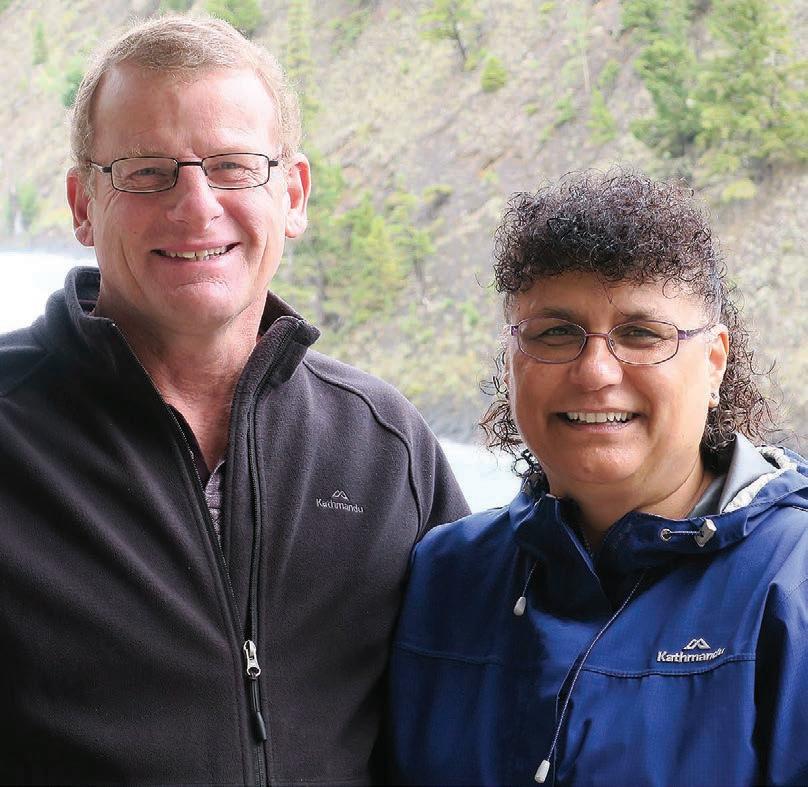
From their arrival the Tredwells made a massive contribution

















to the local community. They have been secretary treasurer of the Mighty East Coast Rugby Club, where Dick is currently vice-president. They are also secretary treasurer of the Tinui ANZAC Trust, secretary treasurer of the Castlepoint Golf Club and treasurer of the Tinui Anglican parish.

Dick has also recently become a justice of the peace.













































































































































































































































































































































Dick originally had a job at the Taratahi agricultural training establishment, but after completing the Tora Walk in South Wairarapa they saw the opportunity for a walk at Whareama. In 2011 that became a reality.
They had consulted with local farmers, who they offered to pay for walking access. The farmers were happy to grant access and still are.
The walking business took off and in 2014 they sold Prospect and purchased the iconic Ica homestead.


The original house was built in 1866. It was burnt down in 1895 and rebuilt in 1901.
It is spectacular, having been














































































faithfully restored to its original character.

As well as providing a base for walkers, Ica is a superb venue for functions including weddings. When the walkers arrive they spend the night at Ica before completing a 14km walk. That night they stay at Wai Ngaio


The walk provides spectacular views of coastal Wairarapa hill
country and the rarely visited Otahome coast.

The food is described as “local, hearty and fresh” with generally a barbeque on the first night so the walkers can get to know each other.
They limit numbers to 200 over the season so it isn’t crowded. The oldest walker so far has been 83 and the youngest just six.
It is a highly successful business that the Tredwells started from nothing.










































































































































































































































































































































































































































































































































































































































































































































It brings people into the Wairarapa, gives local farmers extra income, shows the local sights to walkers from around the country and highlights the food and wine Wairarapa produces.
The initiative is a win-win for the local area.
People come from around the country and see, firsthand, the spectacular local scenery and the other delights coastal Wairarapa has to offer.
The community has also benefitted from the commitment the Tredwells have willingly given.
10 FARMERS WEEKLY – farmersweekly.co.nz – December 19, 2022 Land Champions 10
OPEN LEAN-TO open gable enclosed gable american style barn
ITM1228 HP 265x200 FW.indd 1 19/09/19 12:41 PM
Chances are, you’ve been thinking long and hard about exactly what sort of pole shed you need. So come and tell us, and we’ll help you get it down on paper. Then we can quote it, provide plans and deliver all the materials you need to build it. Job done.
If you can think it, we can help you make it. Come and see us in store or start your quote on-line and let’s get it underway today. itm.co.nz/polesheds | 0800 FOR ITM (367 486)
Retreat, a lodge sleeping 20 on Castlepoint Station. They return to Ica the following day completing a further 10km. Many stay a third night walking the Tinui ANZAC walk and dining at the Tinui café and bar.
After careers in the British Army, UK couple Dick and Carmen Tredwell are living up to their surname by offering spectacular walks along the Wairarapa coast.
PEACETIME: Between them, Dick and Carmen Tredwell have served in Bosnia, Northern Ireland, Hong Kong, the UK, Cyprus and Germany.
Thank you to our world-leading red meat sector
It has been a tough year but we should celebrate our achievements.

The red meat sector continues to be a standout of New Zealand’s economy, generating over $12 billion in income a year for New Zealand and supporting 92,000 jobs. And we should celebrate how we achieve – with world-leading efficiency and with care for the land and communities.
Research we released this year confirms the carbon footprint of New Zealand beef and lamb is among the lowest in the world – even when transport to markets is factored in, because New Zealand is so efficient at the farm level.


Our sheep and beef farmers are kaitiaki (guardians) of 2.8 million hectares of native vegetation on their farmland –that’s almost 10 percent of New Zealand’s total land area, or 24 percent of New Zealand’s total native vegetation –and they continue to protect and enhance biodiversity. We share our farmers’ stories by supporting initiatives like Open Farms and Meat the Need, by working with others on things like the www.makingmeatbetter.nz website and social channels – and through our new awards.



This year, we held the inaugural Beef + Lamb New Zealand Awards.

Congratulations to the winners:
• Ballance Agri-Nutrients Science and Research Award: Lincoln University-Dryland Pastures Research Group
• Datamars Livestock Technology Award: Farmax Ltd

• Gallagher Animal Management Innovative Farming Award: Maatua Hou Ltd
• Silver Fern Farms Market Leader Award: Coastal Lamb Ltd
• AgResearch Emerging Achiever Award: Estee Browne

• Rabobank New Zealand People Development Award: Agri-Women’s Development Trust






• FMG Rural Champion Award: Sandra Matthews
• Alliance Significant Contribution Award: Dr David Stevens
• B+LNZ Regional Leadership Award: East Coast Rural Support Trust





Information about the 2023 Beef + Lamb New Zealand Awards coming soon. More information: beeflambnz.com/awards
B+LNZ will continue to tell our sector’s stories as part of our commitment to working for the best outcomes for farmers.
As we head into election year, B+LNZ is calling on political parties to back the country’s sheep and beef sector and support sensible and workable policies – we need changes because the cumulative economic and social impact of the current poorly crafted rules is crippling.
 Awards Partner
By Farmers. For Farmers™
Awards Partner
By Farmers. For Farmers™
11
Legend on the podium as ‘Schroeds’ honoured
Specialist deer agent Ron Schroeder has been recognised with the top trophy by the New Zealand deer industry he has done so much to help build.
Annette Scott PEOPLE Deer

A“TRUE doer” for the deer industry, Ron Schroeder will clock up his golden anniversary next year in the industry he stumbled upon as a sheep and beef livestock agent in Marlborough.
In recognition of his service to the industry, Schroeds, as he is widely known among his deer industry colleagues, was awarded the New Zealand Deer Industry 2022 award, presented every year by the NZ Deer Farmers Association (NZDFA).
Who could be worthier than Schroeds, who has contributed at the grassroots of the industry for almost 50 years, asked prominent Canterbury deer farmers and award nominators Bob Kingscote and Colin Guild.
Their sentiment was echoed by supporting testimonials from industry stalwarts and leaders, who praised Schroeder’s connection with clients based on his extensive industry knowledge and people skills.
Schroeder has been a matchmaker of buyers and sellers, procuring and transacting thousands of deer deals over his long career, his work taking him the length and breadth of the country as well as overseas.
He has been a staunch supporter of the NZDFA and Deer Industry NZ (DINZ) events with his ability to gauge the pulse of the industry over the years invaluable to organisations as well as stock agent colleagues and countless individual deer farmers.
Messages of support for his nomination described Schroeder as a dedicated stalwart who has gone well beyond the call of duty in supporting and servicing the industry.
“Schroeder has been and remains after 49 years a critical and dedicated agent and is by any standards an outstanding, albeit a quiet, and modest achiever for the deer industry.
“A true doer who is respected and admired and has a legion of business friends and personal association across the industry in an exceptional career,” Kingscote said.
Peel Forest deer farmer Graham Carr acknowledged Schroeder’s contribution to the industry as having been instrumental in acquiring and importing all the overseas genetics from the UK, Germany, Hungary and Yugoslavia.

“The industry has without a doubt benefitted hugely by his support,” Carr said.
Now with the ban on importing livestock we can only work with the genetics we have but that is not all bad because when you look at velvet genetics worldwide, we have the best in the world.
 Ron Schroeder Deer agent
Ron Schroeder Deer agent
Retired DINZ producer manager Tony Pearse praised Schroeder as a master of diplomacy and an accomplished, warm-hearted NZ deer ambassador and standout performer in one of the industry’s most important roles.
Based out of North Canterbury from his hometown of Cheviot, Schroeder is the first stock and station agent recipient of the award.
A self-confessed “old school operator”, the PGG Wrightson agent does not deny his love for deer.
He farms them, buys and sells them, hunts them, eats them and, some believe, dreams about them.
It all began in 1974, when he started with the NZ Farmers CoOp as a sheep and beef stock agent in Marlborough.
Through various contacts he developed an interest in deer and tried to convince some of his sheep and beef clients that deer would be a good option.
“But to no avail,” Schroeder said. Then in 1978, out of the blue, a client saw the light.






“He just came to me and said ‘I’m going to go into deer, where do I start?’ – so I drove him from Marlborough to Southland to look at various set-ups.
“We came home, put up fences and a basic set of yards, brought some hinds and that was the start of my hands-on deer, but it didn’t really take off in Marlborough.”
Then that client got associated with a helicopter pilot and had a sale of feral animals.

“People came from all over NZ and from that I got a lot of contacts and I started chasing deer clients all over the country.”
Schroeder suggested to NZ Farmers it would be worth going full-time on deer and so in 1979 he moved to Christchurch and in 1983, when NZ Farmers merged with Wrightsons, he left and went to Pyne Gould Guinness.
“They didn’t have a deer division as such so I got that going and consequently set up a model deer farm on the outskirts of Christchurch with an auction facility, the first deer facility of its kind in the top of the South Island. The only other one in NZ was in Southland.” Schroeder said.
Driven by excitement for the industry, his passion blossomed.
“I could see a real future in the animal for venison, and latterly velvet. The industry growth was





MASTERY: A ‘true doer and master of diplomacy’, Ron Schroeder has moved mountains for the deer industry in his 49 years as a specialist deer agent.
based on genetic development and I had the fortune in the late ’80s to get overseas exploring in England and Scotland, Europe and Canada, to bring in some of those genetics.”

Over the course of five years Schroeder had 21 trips overseas importing bloodlines.
“Now with the ban on importing livestock we can only work with the genetics we have but that is not all bad because when you look at velvet genetics worldwide, we have the best in the world.

“Deer are an extremely intelligent animal and I really enjoy working with them.”
Schroeder gets his greatest satisfaction these days looking after the next generation of deer farmers.

The biggest legacy to his career is the mentoring and encouragement of young deer farmers and agents.
“I love that, working with the offspring of initial clients, they are like a breath of fresh air and extremely passionate, but still there is a lack of young blood coming through.”

Schroeder has been through a lot of challenges in the industry, from the lows of $4/kg for venison, the impact of land use change and the covid pandemic, but he is confident about the industry’s future.
“I am very bullish about the industry. In the pioneering days it was set up on venison, and velvet was a byproduct, now it’s mainstream for growers and breeders and doing very well and there are lot of good people in the industry making good things happen.
“I feel very honoured to be recognised in this unique industry as I do like to fly under the radar,” Schroeds said.
Premium New Zealand Merino heirloom
blankets www.naturesgiftforbaby.com At Natures Gift For Baby we believe the key to a good nights sleep is a great blanket! Gentle on Baby’s skin and gentle on the environment. 5 timeless colours. $99ea LK0113340© Free deliverywithinNZ 12 FARMERS WEEKLY – farmersweekly.co.nz – December 19, 2022 Land Champions 12
baby
Thanks















nzwool.co.nz 13
Let’s change the wool industry. Together. to all the amazing contributors funding the Campaign for Wool New Zealand.
Healthier herds a sustainable outcome, too

Dr Scott McDougall’s research work is not in the fashionable eld of environmental sustainability, but it has played a vital role in improving dairying’s impact through better herd health.
Richard Rennie TECHNOLOGY Dairy
THE bucolic Waikato dairy town of Morrinsville is about as far from an ivory tower as one can get, but this suits dairy researcher Dr Scott McDougall fine, knowing he is close to the cows and their farmers. Both have benefitted from his 20-plus years of practical, respected dairy production research.
He has headed up the lowprofile Cognosco Animal Health & Production Research company in the town for much of that time, overseeing some of the most significant clinical trials in dairy production and health, with findings that are now part of industry best practice.
With more than 7000 citations of his academic papers in the past eight years alone, McDougall’s work has been absorbed as much by his veterinary peers as by his farmer audience.
Talking easily to both academics and farmers is a rare ability, but McDougall has it, communicating the science and practicalities of dealing with dairying’s challenging triplets of mastitis, poor fertility and antibiotic resistance.
In the process he has contributed greatly to improved dairy cow welfare, production and ultimately sustainability over the largest growth phase the New Zealand dairy industry has ever experienced.

“I have never wanted to be in an ivory tower. I am always conscious I am spending someone else’s money with the work we do, often
farmers’ money, and wanting to do stuff that is relevant to them as end users. That’s always been a big driver, to solve real problems on real farms and communicate to help farmers,” said McDougall. His interest in livestock was sparked after he took a year off from veterinary studies at the University of Sydney and spent it working on a vast northeastern Tasmanian sheep and beef station.
“I had done my thesis on wallaby reproduction, which funnily enough proved to be a good fundamental training for livestock reproduction.”
It was a faxed job offer back in 1990 from his academic idol, dairy scientist Jock McMillan, that drew McDougall across the Tasman to work at the nascent Dairy Research Corporation as the corporation’s first PhD student.
“That early work, focusing on the key causes of seasonal dairy cow anoestrus, was an exciting time. We were using early ultrasound technology to try and better understand follicle formation in cow ovaries.”
He learnt that egg-bearing follicles come in waves, and it is not their absence but the lack of hormonal support to sustain them long enough that often causes cows to be anoestrus.
With that knowledge they were able to significantly enhance CIDRs (controlled intravaginal drug release), a tool farmers were already using with varied success to lift cow fertility at mating.
Adding hormone treatment at each end of CIDR use significantly lifted its performance. With that the likelihood of a treated cow getting in calf at first mating went from 36% to 48%, with CIDRs
proving to be highly economic even at very low payout levels.
McDougall’s 2009 trial work on 2500 anoestrus cows using CIDRs remains one of the definitive examples of a clinical trial delivering direct, measurable success that is still relevant to farmers today.
His work on managing mastitis better in the national herd was prompted after the average bulk somatic cell count started to lift nationally from a respectable 170,000 to over 200,000. This had a serious impact on milk quality and a rising level of herd mastitis problems.
It also coincided with a massive surge in dairy cow numbers through the early 2000s.
“We found farmers were getting
big problems with mastitis in first-calving heifers from environmental Strep uberis bacteria, something we had never really seen before with rates as high as 30% in some herds.”
His teams’ work identifying bacterial infections on a bulk and individual animal basis lent much to understanding the infection’s nature and helping push it back down again using non-antibiotic teat sealants prior to heifers calving to block infection entry.

Previously teat sealants had only been used when drying cows off in autumn.
“We found it worked beautifully, reducing infection rates by three quarters, and saved a lot of heifers.”
He counts the work as something he is most proud of, particularly the many practical innovations that came from it including inpaddock heifer holding pens to administer sealant, and training technicians on the tricky job of administering the sealant.
His work on studying antimicrobial resistance in dairy cows has also helped dairy farmers better target their use of antibiotics at drying off,

helping to keep use tighter and prolonging the industry’s ability to use the drugs without resistance developing.
“We have proven that good stewardship and practices mean resistance is minimal and doesn’t appear to be getting any worse.”
Meantime McDougall is excited by the emergence of new talent and technology to help meet dairying’s challenges around the environment.
He acknowledges his nuts-andbolts research may outwardly appear to be out of research “fashion”, as the industry focuses on sustainability and environmental practices.
However, McDougall’s work has also ensured dairying’s sustainability, helping farmers keep their herds healthy, fertile and by default far more efficient than if infertile and ill.
Meantime, he also intends to keep dialogue with his valued farmer subjects flowing.
“As the late Arnold Bryant said, you have not done your job if you have not communicated your science – it is no use unless farmers and vets are using your research.”
2023 RURAL LEADERS AGRIBUSINESS SUMMIT EARLYBIRD TICKETS CLOSE 31 JANUARY. 15 FARMERS WEEKLY – farmersweekly.co.nz – December 19, 2022 Land Champions 15
Featuring influential national and international speakers, the Summit ‘Forefront’ is a one-day, solutions-focused event not to be missed. Hosted by Corin Dann, speakers include: Devry Boughner Vorwerk (pictured), Angus Brown, Lain Jager, Traci Houpapa and more. 27 March, 2023, Christchurch Town Hall. Learn more or book at ruralleaders.co.nz/forefront/
STUDIED: Dr Scott McDougall of Cognosco has overseen some of the most significant clinical trials in dairy production.
That’s always been a big driver, to solve real problems on real farms and communicate to help farmers.
Dr Scott McDougall Cognosco







16
Honoured for building up a new industry
Not one for the limelight, Haldon station manager Paddy Boyd was “a bit taken back” when he and his wife Barbara were bestowed life membership of the New Zealand Deer Farmers’ Association.
Scott PEOPLE Deer
PADDY Boyd’s contribution to the deer industry has been described as “insurmountable”.
Paddy and his wife Barbara, of Haldon Station in the Mackenzie country, were recently bestowed life membership of the New Zealand Deer Farmers’ association (NZDFA) in recognition of many decades of contribution to the industry.
He said his industry involvement has been driven by passion and a desire for the farmers’ voice to be heard.
“Insurmountable contribution deserved of recognition” sums up the citation of a man who has played many a leading role in the development of the deer industry, from being at the forefront of live capture in the early days of deer farming to bringing the Passion 2 Profit programme into existence as a key member of the productivity leadership group.
Driven by his passion for deer, Paddy’s involvement has been across numerous industry groups including as chair of the NZDFA Selection and Appointment Panel (SAP), in quality assurance, the Cervena strategy, velveting standards, genetic improvement and environmental standards, Tb eradication and OSPRI governance.

He is a firm advocate for all products produced by the deer industry as well as being an enthusiastic advocate for people.
“I was a bit taken back when I realised what it was all about,” Paddy said of the life membership presentation.
“I just do what I’m a firm
believer of and that’s the farmers’ voice.”
He said he has often been a voice for those farmers who prefer not to front at industry events but are passionate deer farmers in their own right and whose views and wishes need to be understood.
He has worn many hats in representing a large number of farming entities over the past 35 years, from sheep and fine wool to beef and deer farming.

He has a passion for them all, giving 100% to any role he takes on.
“I’ve always been there to fight for the farmer as I want farmers’ point of view being considered around a board table,” he said.
He has been asked to stand for the board, but it has not appealed, well not yet.
“On the board you have to be 100% committed and it would burn up a lot of my time that I still need for elsewhere.
“It may be an option in the future when I find a bit of spare time.”
shingle road into Haldon: “If it’s any further than this, I don’t want to live here.”
“Just a bit further,” Paddy replied.

By the time they had driven another 30-odd kilometres, Barbara had firmly decided this was not the place for her – but the day wasn’t over.
They were met by owner James Innes and flown over the property in a helicopter.


There was a lot to consider as they made the long drive home to Kaikoura.
Paddy suggested they give it a go for three years. The young couple moved to Haldon in 1982.

happy memories and farming achievements.
Under Paddy’s management Haldon Station has gone from being a pioneer of large-scale deer farming to become the public face of deer farming excellence.
Haldon has been a supreme winner in the Ballance Farm Environment Awards and a winner in the Deer Industry NZ (DINZ) environmental awards.
In 2014 Paddy was awarded the DINZ’s top deer award in recognition of many years’ service.
He acknowledged Barbara’s involvement in both Haldon Station’s business administration and his deer industry work.
from the station to be reinvested in development to make Haldon a model farm that will always provide excellent food and fibre for NZ and the world.
“I could do what I wanted as long as it stacked up. They were very good to us and gave us every opportunity, including many overseas trips to look at farming practices, bring in genetics, attend conferences and achieve what we have here at Haldon today.”
Sadly, Han died last month at the age of 95, but Jenny, 92, supported by her family, remains a “strong matriarch”, and the Klisser family has no plan to sell Haldon at this stage, Paddy said.
Meanwhile there can be very few, if any, large scale properties in the country like Haldon Station, where there have been more owners than managers.
Haldon has only had two different owners in the past 45 years, and Paddy has been there right through that time.
Recalled in a recently published book on Haldon Station, Barbara told her husband of just 18 months as they sped down the rough
While they waited for their allocated house the roof over their head was a concrete hut transformed into a bedroom.
The first four weeks were rough for Barbara, from Christchurch. She was homesick, her goldfish and plants died and rodents could be heard in the rafters above them at night.
“The rest, as they say, is history,” Paddy said.
“Give it a go for three years” grew to 40 years and while there have been bleak times, they are overshadowed by the many










“I used to be hopeless with a computer, I would scribble things out and she would write it up. I have got better, though.”
Paddy attributed much of the station’s development and achievements to Auckland-based Han and Jenny Klisser, former owners of Vogel bread, who purchased Haldon in 1991.
“They had no farming knowledge and asked us to stay on for three or four years. They were very good people to work for and allowed me to have my own vision.”
They wanted all the income
While Paddy and Barbara are looking ahead to their retirement and a new home on their smallholding near Pleasant Point in South Canterbury, they have agreed to stay on at Haldon in the meantime.

“We are looking at our future; as long as I am here, I will get up and go out to work every day. I need to consider retirement and more time with family,” Paddy said.
“We are meeting with an architect to design our new home and then I can just come back and oversee Haldon as long as I can.”
A family whose story could fill a book
Steve Wyn-Harris PEOPLE Community


FOR those of us not connected to the Williams family, it can be a surprise to discover how large it is.
Many of its members, of course, don’t have the surname Williams.
You will be at some sort of rural function only to find many of the others present turn out to be distant cousins, so learn to be cautious when discussing this family and its legacy!
How has the family become so large and how did two Anglican missionary brothers and their many farming descendants end up with so much land?

Hugh McBain’s book The Plough, the Chalice and the Sword, gives answers to both of these


questions. But it offers much more. McBain has chronicled the early history of the Williamses as they established their lives in this new colony, how they went about their missionary work and how they began their farming
The first part, The Plough,

features the farming businesses of the founders of the family and there are chapters covering the farming exploits of descendants in the various branches of the family.
many family-owned farms and how it was that some of these properties stayed in family ownership. The reader gains great insight into the modern farming businesses of the current generation. The wonderful pictures of families and their properties show the pride these farming folk have in their history and the land.
The second part, The Chalice, is concerned with the religious activities of these founding Anglican missionaries and their successful conversion of Māori to Christianity. This is followed by the stories of family members’ continuing involvement with the Anglican Church over the next 150 years. There are also chapters on the many churches and chapels with Williams family connections.
The third part, The Sword, delves into the military
involvement of family members ranging from the Napoleonic Wars to the Sinai in 2021. Some 150 members of the family have seen active service over the past 200 years with many paying the ultimate sacrifice.
McBain has gone to great lengths, in this labour of love, to chronicle some aspects of his Williams family history. The family will be pleased to have this collection of stories and others will also find it of interest.

17 FARMERS WEEKLY – farmersweekly.co.nz – December 19, 2022 Land Champions 17
HOLDINGS: How two Anglican missionary brothers and their many farming descendants ended up with so much land is one of the threads in Hugh McBain’s book.
about their missionary work and how they began their farming endeavours. of the family. We learn the history of
About 150 members of the family have seen active service over the past 200 years with many paying the ultimate sacrifice.
STAYING ON: ‘Give it a go for three years’ has stretched to 40 years for Barbara and Paddy Boyd on Haldon Station in the Mackenzie country.
I want farmers’ point of view being considered around a board table.
Paddy Boyd
Haldon Station
Annette
Baling out after 60 years working in wool
Hugh Stringleman PEOPLE Wool
KEV Wilson has been woven into the Hawke’s Bay wool industry for over 60 years, during which he has worked with thousands of people and hundreds of East Coast sheep farmers.

In late November he retired from PGG Wrightson after 36 years, the past two decades in charge of the bin room and show floor, where all clips are appraised before auction.
Wilson started in wool in 1962, aged 16, as a junior classer for private broker De Pelichet Mcleod.
He was born and raised on a dairy farm at Puketapu and left school to attend Lindisfarne College to study agriculture.
All his mates were sons of sheep
farmers and he worked during school holidays in woolsheds and stores, before getting an invitation to learn wool classing.
The Korean War had supercharged the wool sector and demand for the fibre was strong.
Napier was home to more than a dozen wool stores, most still standing and re-purposed: Dalgety, Hawke’s Bay Farmers, Williams & Kettle, Wrightson and National Mortgage and many others.
“At the height of each season over 1000 people worked in the local industry in Hawke’s Bay and New Zealand had 80 million sheep,” Wilson recalled.
In 1973 he moved to scouring company Louis Woods & Sons, in Awatoto.

He recalled that work was a lot more physical then, bales being manhandled around the stores and off and on transport.
“That was before forklifts and cats’ claws, so all the wool had to be shifted with hooks and barrows, and bales were stacked seven high in the old days.
“We didn’t think much about health and safety.
“If the stack opened up, it could be hazardous, and though I saw that happen a few times, I never saw anybody injured. You had to ride the bales down as they fell.”
When Louis Woods & Sons sold the plant in 1986, he decided to move on.
“I was fairly well known in the industry, so I went down the road to Wrightson Dalgety, walked in the door and Allan Jones offered me a job just like that, and away I went.”
It was during the 1980s that Wilson spent the shearing season
All wool had to be shifted with hooks and barrows, and bales were stacked seven high in the old days.
Kev Wilson PGG Wrightson Wool
in farm woolsheds, classing at source.
“I have always had very good relationships with farmers,” he said, although the on-farm work required very early starts and long days.
Automation gradually came to wool stores; grab samplers, high-density presses, forklifts and conveyors.
Wilson said 120 people worked in the Wrightson Napier store when he started there 36 years ago. Now there are only 12, plus the office staff.
Easing the pain of drought in Kenya through farming
The sheep flock has shrunk and the number of wool auctions reduced, but the productivity of wool store staff members has substantially increased, and the jobs are nowhere near as taxing.
“When more people worked here, I definitely enjoyed it more, though maybe it is more efficient since modern systems and processes, and computerisation has come in.
“It’s quicker and more thorough, though you miss the human element,” he said.
Sale days are fortnightly most of the year or weekly during the high season and just as much effort goes into sample displaying and clip appraisal, notwithstanding the objective measurements available to buyers.
To be a good wool classer you have to enjoy it, Wilson reckons.
He has trained plenty of classers, including several who now hold prominent management roles in the wool sector.
PGG Wrightson’s general manager of wool, Grant Edwards, said Wilson has not only been a diligent and very skilled worker but has trained many current wool industry personnel.
Many past and present Wrightson wool staff attended the retirement function, including Edwards’s predecessor Cedric Bayly and the current North Island wool manager, Allan Jones.

Wilson said his immediate plan for retirement was to do nothing, after working 60 years, and then to travel around visiting many of the very good friends he has made during that time.
One final question: “Will strong wools recover in price and reward farmers who have sheep?”
“Yes, I would like to think so, with all the different uses now being tried, something will pay off,” he said – the eternal optimist when it comes to wool, having made it his life’s work.
ACCORDING to the United Nations, the Horn of Africa –comprising parts of Ethiopia, Kenya and Somalia – is experiencing the most severe drought in recent history, following four consecutive failed rainy seasons. It is a climatic event not seen in at least 40 years.
ChildFund chief executive Mark Collins said production at the New Zealand-backed project, Masimba Dairy Processing Centre in Emali, a rural and semi-arid area of Kenya, is significantly down because of the drought.
The project was funded by the New Zealand Government’s Aid Programme and New Zealand
supporters of ChildFund and started over five years ago when a need to improve agriculture practices was identified. During this project, NZ and Kenyan farming experts worked with local Maasai farmers to develop a project plan suited to the local environment.
Despite the drought, the factory remains critical for farmers and their families to get through climate emergencies.
“ChildFund’s Masimba Dairy Processing Centre is as tangible as it gets when it comes to humanitarian and development work,” Collins said.
“Droughts like the current one highlight the importance of climate resilient projects like ChildFund’s dairy project in Kenya, which supports farmers with climate-smart agriculture
practices, training on pasture cultivation and management, and baling hay to get farmers through the dry periods.”
The opening of the Masimba Dairy Processing Centre is on the back of a four-year ChildFund agricultural project that has seen the establishment of the Samli Dairy Co-operative of 600 farmers, two milk collection centres and three milk collection points.
“I’ve heard firsthand from farmers and workers at the Masimba Dairy Processing Centre whose lives and the lives of their families have completely changed because of this project. It’s a great example of sustainable, locally led development work and now ChildFund wants to grow it and do more,” Collins said.
He is calling on New Zealanders to help support the programme by
donating a cow, goat, chicken or farming bundle this year through its Gifts that Grow appeal.
Dairy is strongly linked to the traditional farming practices of Maasai farmers and was one of the two agricultural sectors prioritised in the project.
“This dairy project is as much about getting protein from milk and yoghurt into children as it is about sustainable livelihoods for farmers and their families who face daily hardships in this very dry and remote area of Kenya,” Collins said.

18 FARMERS WEEKLY – farmersweekly.co.nz – December 19, 2022 Land Champions 18
Over the years Kev Wilson of PGG Wrightson Wool has seen the job change, but the one constant is his belief in the bre itself.
GATHERING: PGG Wrightson Wool leaders and employees past and present attended the retirement function for Kev Wilson in Napier.
OCCUPATION: Kev Wilson of Napier worked for 60 years in the wool industry, the past 20 in charge of the bin room at PGG Wrightson.
Staff reporter PEOPLE Community
A New Zealand-backed dairy farming initiative is making a di erence to the lives of thousands of Kenyan people as they battle ongoing drought.
TEAMWORK: ChildFund chief executive Mark Collins with Samli dairy co-op scientist and sales rep Francis Ndunda Musau.
Hunting, shooting, fishing ... and covid
Controlling your destiny is not always straightforward, especially when a global pandemic interferes. Richard and Sarah Burdon of Glen Dene Station in Central Otago learnt that firsthand.
 Wallace PEOPLE Tourism
Wallace PEOPLE Tourism
DIVERSIFICATION has taken on a whole new meaning for Richard and Sarah Burdon of Glen Dene Station at Lake Hawea in Central Otago.
An initial investment in a guided hunting and fishing business was designed to assist with farm succession, but when the adjacent Lake Hawea Camping Ground came up for sale in 2009, they saw it as another vehicle for greater control over their affairs.
Income from those off-farm investments disappeared with the arrival of covid in 2020, and they had to look again at what diversification meant to them. It came to describe diversity of thought and the strategy and planning needed to ensure their businesses survived.
“We lost all our income from the camping ground and hunting and it took an enormous amount of working through contracts and realigning our business,” said Richard.
their off-farm businesses, which relied on international travellers.
Richard and Sarah are the third generation at Glen Dene, which straddles the mountains between lakes Hawea and Wanaka, and when they took over the farm in 2001 they realised the 6000ha traditional high country property could not support two families.
At the same time the family were going through tenure review, a process to allow the freeholding of part of their pastoral lease.
Richard said that process took seven years and required them to work with the Department of Conservation, local groups and iwi, which gave them a fresh perspective on the property.
This was reinforced when at about the same time the government paid twice the then current per stock unit price for Birchwood Station near Omarama, which it turned into a conservation park.
These experiences highlighted for Richard and Sarah the value of the land other than for agriculture.
It made them start thinking about other opportunities.
Richard’s grandfather George
environmentalist, recreationist and conservationist all on the same piece of land.”
Each year they host 80 to 100 local and overseas hunters, ranging from those who have saved long and hard for the opportunity to those with enormous wealth.
They follow the principles of regenerative tourism, which for hunting means involving the wider community, hosting and dining with their guests and sharing information about the environment and history of the district.
“When they go home, they are not only part of the family or friends, but they go home knowing a lot more about New Zealand,” said Richard.
Local guides, helicopter operators and caterers provide the various services for Glen Dene’s hunting clients.
The Burdons added to their diversity strategy in 2009 when they bought The Camp.
“We had some freehold land beside the camp so it made sense,” said Sarah.
They were immediately thrust into the global financial crisis, a challenge compounded by the relative obscurity of Hawea as a tourist destination.
“We flatlined for eight to 10 years as we had no marketing. It was a steep learning curve,” said Sarah.
Having survived that global financial storm, they were caught out again in 2020 with covid. The establishment of an advisory board of Ray Macleod and Mark Tavendale was crucial in traversing those difficult years, as was a structure of managers running the various elements of their business.

Before the pandemic struck in March 2020, business prospects were looking positive and they had committed to building six five-star geo domes.

The aim was to provide highquality accommodation primarily for hunting clients.
to the food truck experience by securing a liquor licence and inviting musicians.
The camping business was boosted by an exceptionally hot 2021-22 summer, which attracted strong domestic demand.
“The food truck and bar created a great vibe and meant that people had a hassle-free holiday by not having to cook.
“El Niño was great for The Camp but bad for farming.”
Sarah said lockdown made people revisit priorities, with family, friends and the environment growing in importance, for which camping grounds are ideally suited.
“We were lucky people travelled and came and stayed at The Camp, reigniting their links with the outdoors and people.”
They had a disrupted camping season for two and a half years and lost three hunting seasons, but business quickly recovered when
people were free to travel.
“At the end of the day it’s about focusing on the customer, that’s the most important part,” said Sarah.
They had several other strings to their bow, which helped them weather covid.
Their Merino flock has been exchanged for crossbreds and the farm changed from fine wool production to prime lamb finishing, underpinned by leasing a 209ha irrigated property at Hawea and the purchase of a 430ha farm in South Otago.
In hand with that, they are suppliers of Lumina prime lamb to the Alliance Group.
They also had 300 hives producing Mānuka honey and 500ha of production forestry and regenerating native bush, for which they earn carbon credits, with the money used to fund the fencing of wetlands, lake margins and waterways.
Those funds were crucial in keeping the business afloat during covid.
Their two children, Georgie and Charlie, are both keen to be involved in the business.
Georgie is studying Ag Innovation at the University of Otago and Charlie, in his first year out of school, is working at the Okawa Hereford stud in Mid Canterbury.
The 20 staff employed at the peak of the renamed The Camp were dramatically trimmed as it was effectively transformed into an Airbnb utilising cottage accommodation.
Sarah said the shoulders of the season were especially tough and she found herself filling in wherever she was needed.
“Over the summer this would mean working seven days a week helping the cleaning team, hosting the lodge, duty manager for the food truck, reservations, after hours security, rosters, accounts or people management.
“It was crazy and exhausting swapping from one role to another.”
All the time she and Richard were looking at ways to resurrect
Burdon settled the adjacent Mt Burke station in 1929 and in 1979 Glen Dene, the northern portion of the property, was split off.
Richard’s parents, Jerry and Lesley, who had taken over the property, had granted access to commercial hunting guides on Glen Dene but the real potential of diversification materialised following a conversation with neighbours Bobby and Dottie Hill, owners of the adjacent Makarora River Ranch.
Originally from Colorado, where they had a hunting lodge, the Hills spoke about the opportunities such a venture offered.
“It opened our eyes to the recreational opportunities of hunting and fishing,” said Richard.

“You can be a farmer,
As the country closed down, so did construction for six months.
Thinking covid would be a brief inconvenience, Sarah said they remained committed to what was an expensive and a relatively unknown building process.
“We thought when the market is ready, we’ll be ready.
“Shutting down wasn’t sitting down for us,” said Sarah.
“Staff were moved to other areas and we started doing things like reviewing health and safety, marketing and the guest experience journey.”
When restrictions on interaction started to ease, they invited food trucks into The Camp so the community could buy food and interact with each other.
The following year they added
19 FARMERS WEEKLY – farmersweekly.co.nz – December 19, 2022 Land Champions 19
WEATHERED THE STORM: Richard and Sarah Burdon from Glen Dene Station in Central Otago.
Neal
WORTHWHILE: Built during covid lockdown, these six five-star geo domes have proven a valuable addition to Glen Dene’s camping ground and guided hunting business.
READY TO MOUNT: Antlers from deer shot on Glen Dene and neighbouring properties are stored waiting for the taxidermist.
You can be a farmer, environmentalist, recreationist and conservationist all on the same piece of land.
Richard
Burdon Glen Dene
Keeping a date with community care, wellbeing
The Dalton family of Derbyshire in the United Kingdom have had a tough year after losing someone close. Now, via a special calendar of images, they are hoping to help others in the community.
AT SHAWCRAFT Farm it is an all-hands-on-deck approach and there is a place for everyone. Sue Dalton and her family run a thriving dairy business in Ashbourne, Derbyshire, where her husband Angus is chief butter maker and her daughter Rosie heads up the ice-cream enterprise.

Sue, along with her son Henry and his wife Rosa, take care of the 450 cows.
Sue and Angus have their own story, as both are first-generation farmers. Sue was a radiographer and Angus worked in factory management. But Angus had always wanted to work with cows.
“He got a job as a herdsman and worked his way up,” Sue said. “We worked around the country on various jobs, then got a county council farm in Wales in 1996, moved up the ladder of tenancies and are now on a private tenancy.”
They have been at Shawcraft for 20 years and now run 450 Kiwi crosses across 320ha, all on a grass-based system.
Over the years, they have changed their system to suit their farm – the crosses, which are Holstein-Friesians and Jerseys, give the best of both breeds and are milked just once a day.
“We have bred our own little cow, which is perfect for walking, eating and producing a good quality milk. They are not highyielding Holsteins. It has evolved and it suits our farm,” Sue said.
“When we got the cows in all the time and were feeding total mixed ration and buying in feed, there was no profit, so we had to do something.
“It is a very low-input system –obviously it is low output, but it is [about] the quality of the milk.”
Their main contract is with Yewtree Dairy and they also sell to a cheesemaker who makes Staffordshire cheese.
The original move into ice cream and butter came after both their children wanted to come home to farm.
The business expanded and you can now buy ice cream, butter and
coffee through their honesty shop, all under the brand Dalton’s Dairy.
“Henry came home and wanted to farm after university, and so did Rosie, who studied marketing and economics,” Sue said.
“We all wanted to add value to the milk, but we needed to make sure there was a market for our products and the business could grow sufficiently to employ Henry and Rosie.
“It has added value to our milk – in quite a small way, but it is a brand and it is about getting the story across that these cows are grass-fed.
“People love that story. They can see the cows in the field and people take pride in bringing their friends back.
“Farmers do not tell their story enough. We have started selling our butter into London now and they love that my son has milked the cows and Angus has made the butter.
“I know it is all very artisan, but people are connecting in a way they did not five years ago.
“It has created enough employment to support three families in a way.”
Across the year, butterfat averages 5.4% and protein is about 4.2%. The yield per cow is an average of 3,600l, with the business aiming to get as much milk from grass as it can.
They spring calve from early March until the end of April.
“We breed from the best using artificial insemination and breed
enough to replace. The rest are put to Aberdeen-Angus bulls and we have one private calf buyer,” Sue said.
The farm is part of the UK’s Higher Level Stewardship scheme, but the biggest change came when they decided to milk once a day and put concrete sleepers down to enable cows to get out.
Christmas can be a lonely time, especially on farms where animals need to be fed, jobs need to be done and there is no real break from work. It is important to look out for each other.
farm
“It is not the best ground in the world – it is quite heavy and quite a long drawn-out farm, so it is quite a way for cows to walk.
“Bovine TB has been a big problem for us too, but thankfully we have had clear tests.”
In November 2021, the news came that Rosa’s father, Mike Malseed, had taken his own life.
The Dalton family and the
Malseed family were close. Rosa’s father farmed in Chagford on Dartmoor, Devon, and had run a beef, sheep and turkey enterprise.
Mike, who was just 62 when he died, has been described as “the lynchpin” and a well-respected farmer. His death sent shockwaves through the farming community.
“He had a crisis around a year ago and could not cope after a lot of issues came all at once for him,” Sue said.
“The last cow through tested positive for bTB and he was worried about feed.
“Normally, he would have coped with it all, but perhaps covid-19 escalated it too, with people being isolated.
“Before he got any proper help, he took his own life. Absolutely nobody saw it coming.”
The past two years have been difficult for the farming community, given the extreme weather conditions, poor harvests and, of course, a global pandemic.
Research earlier this year from the Farming Safety Foundation revealed 92% of UK farmers under the age of 40 said poor mental health was the biggest hidden problem farmers face.
This time of year can also prove difficult for many, but Sue and her family are hoping to help others by raising money for a UK agricultural charity, the Farming Community Network (FCN), by selling a calendar inspired by Shawcraft farm.

Friend and local artist Lee Mackay had recently completed 40 oil paintings entitled A Dairy Farm Year.
“We had not realised she had been coming to the farm and then going home to paint. She had produced more than 40 oil paintings,” Sue said.
“Someone in the village suggested a calendar should be made and sold in honour of Mike’s
Lamb trumps wool in Aus outlook
AUSTRALIAN producers separate the sheep from the fleece when asked to predict where prices will go for lamb and wool.
Meat & Livestock Australia (MLA) market analyst Jenny Lim said: “Despite ... concerns, producer sentiment around the sheepmeat industry is extremely positive moving forward, with a
67% net-positive rating among sheepmeat producers in Australia.”

However, sentiments were less positive for the wool sector, with only a 12% net-positive rating.
Auction marts and saleyards continued to be the dominant sales channel for producers, with MLA highlighting the importance of this sales method to the
industry as a whole. A total of 58% of participants said saleyard auctions are the main channel they use to sell their sheep.
This is particularly strong in New South Wales, where 73% of farmers use marts to sell their stock.
Larger producers are more likely to use direct sales.
Farmers Guardian
life, and Rosa liked the idea.”
The calendars will all be available to buy at the farm’s honestly shop so that “hopefully this does not have to happen to another man, farmer or family’, she said.
“We as a family are going to pay for the printing and 100% of the proceeds will go to the charity.”
Rosa is hoping the calendar can connect to rural families and she is keen to encourage people to reach out.
“The aim of the calendar is to raise funds to increase the awareness and warning signs of mental health to prevent this happening to another farming family,” Rosa said.
“All proceeds from the calendar will go to FCN and the work it does to widen awareness and provide support to rural communities.
“Christmas can be a lonely time, especially on farms where animals need to be fed, jobs need to be done and there is no real break from work.
“It is important to look out for each other. You can be lonely even in a crowd. You do not have to keep a lid on all your problems and bottle up feelings.
“Asking for help is not a weakness; it is brave and positive.”
Guardian MORE: Suffering from depression or stress, or know someone who is? Where to get help: RURAL
Farmers
SALEYARDS: A total of 58% of participants in a recent survey say saleyard auctions are the main channel Australian farmers use to sell their sheep.
20 World FARMERS WEEKLY – farmersweekly.co.nz – December 19, 2022 World 20
RURAL
0800
0800 543 354 NEED TO TALK?
text 1737 SAMARITANS: 0800
666 YOUTHLINE:
or text 234
SUPPORT TRUST: 0800
HELP DEPRESSION HELPLINE:
111 757 LIFELINE:
Call or
726
0800 376 633
ADDED VALUE:
sell their own ice cream
other products.
Rosa Dalton Shawcraft
The Dalton’s Dairy honesty farm shop, where the family
and
FAMILY AFFAIR: Back row, from left, Rosa, Henry, Angus and Rosie Dalton. Front row: Sue Dalton and artist Lee Mackay.
One of NZ's most distinguished
Waipaoa Station; 3,648.36ha (STS) is for sale by way of International Tender and provides the opportunity to acquire one of the most exemplary sheep and beef properties in NZ. The Station may be considered in its entirety, or as 4 individual operations, each of which contains a multitude of very favourable farming attributes and is set up to deliver superior farming performance and results. Waipaoa comprises an abundance of flat land, the heart of which is under centre pivot irrigation, consented for 124ha. The farm's easy-rolling contour has excellent water infrastructure, and outstanding fertility throughout, with the rear of the farm being home to the esteemed Waipaoa Farm Cadet Training Trust. Years of extensive investment, quality contour and focus on productive performance, have ensured efficient farming practices and has seen farming operations thrive. bayleys.co.nz/2752753
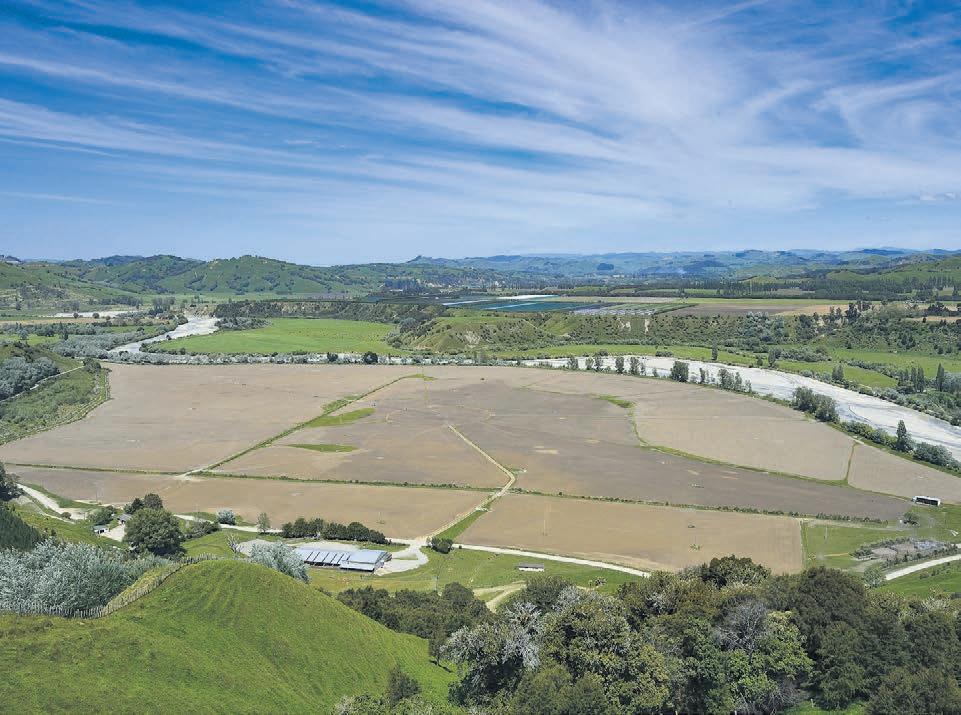


Waipaoa Station Whatatutu, Gisborne 3,648.36ha International Tender Closing 4pm, Wed 15 Feb 2023 10 Reads Quay, Gisborne View by appointment Simon Bousfield 027
8778 simon.bousfield@bayleys.co.nz Stephen Thomson
stephen.thomson@bayleys.co.nz BOUSFIELD MACPHERSON LTD, BAYLEYS, LICENSED UNDER THE REA ACT 2008
bayleys.co.nz
665
027 450 6531
Stations
21 Real Estate
Farm, forest and duck shooting on 202ha
Located in the reputable farming and community-focussed Elsthorpe district is this picturesque 202 hectare (more or less) grazing property, just 34km south of Havelock North and some 50km south of Napier. With a mix of predominantly easy to medium contour, this farm is perfect for a combination of breeding and finishing livestock. The property has excellent natural and reticulated stock water and features numerous dams and a large lake with a variety of evergreen and deciduous trees, making this a duck shooters delight. There are three consented building sites and improvements include a large implement shed/workshop and ancillary buildings with a combination set of sheep/cattle yards and loadout near the road. Workability is excellent with a metalled track and laneway providing great access to a centrally located stockyard complex. bayleys.co.nz/2853171


202.42ha
Tender (unless sold prior)
Closing 4pm, Thu 26 Jan 2023
17 Napier Road, Havelock North View by appointment

Tim Wynne-Lewis 027 488 9719
tim.wynne-lewis@bayleys.co.nz
Tony Rasmussen 027 429 2253 tony.rasmussen@bayleys.co.nz

Boundary lines are indicative only
Elsthorpe 2412 Kahuranaki Road
EASTERN REALTY LTD, BAYLEYS, LICENSED UNDER THE REA ACT 2008
Advertise with us Reach hundreds and thousands of rural New Zealanders every week Call Grant 027 887 5568 22 FARMERS WEEKLY – farmersweekly.co.nz – December 19, 2022 Real Estate 22
437 ha breeding / finishing block at Matau




Genuinely for sale is this great 384 ha (effective) eastern Taranaki sheep and beef farm. Located at Matau (approx. 45 min from Stratford) with six titles, it has traditionally farmed 2,000 to 2,500 sheep and 265 cattle. Since 2019 it has solely been used as a breeding and finishing block for 400 Angus cattle. Being well subdivided into 40 paddocks with a strong history of fertiliser application (airstrip on property), impressive weight gain is achieved from healthy looking cattle. The property consists of well balanced and easier contour and is well tracked, providing good access for animal movement. A water reticulation system is on the easier country, backed up by a reliable, natural water supply. This property offers a sound three bedroom summit stone home and strong infrastructure, including a four stand woolshed with 900 np, cattle yards and three satellite yards. This high quality, well located farm provides an excellent mid-scale dry stock opportunity.







•




59
Stratford
Tawhiwhi Road New Listing
3 1 For Sale $4,950,000 + GST (if any) View By appointment Web
Greg
M
Together Stronger PB053815 Our combined strengths complement each other, creating more opportunity for our customers and Farmlands shareholders across provincial New Zealand.
network from Northland to Southland
pb.co.nz/NPR112955
O'Byrne
027 598 3000 E greg.obyrne@pb.co.nz
• A nationwide
Sound, trustworthy advice from market-leading experts • Shareholder benefits and preferential commission rates means more money in your pocket Bigger networks, more buyers, better results For more information call 0800 367 5263 or visit pb.co.nz/together
Auction
4 2 4 Auction 1.00pm, Thu 26th Jan, 2023, (unless sold prior) View By appointment Web pb.co.nz/RL111513 Hamish Anderson M 027 678 8888 Maurice Newell M 027 240 1718 Property Brokers Ltd Licensed REAA 2008 pb.co.nz Proud to be here 23
Clarkville 128 Baynons Road
Location, location, location This property comprises 46.3 ha with a 417 m2 four bedroom, two bathroom, three living area home with easy indoor/outdoor flow and internally accessed double garage. Support buildings include a sleepout, workshop with extra garage space, feed and storage sheds. The property also has a comprehensive stable complex with housing for up to 14 horses under cover and includes a half mile training track alongside. The property has spectacular uninterrupted views across the Canterbury Plains to the Southern Alps. Multiple freshwater springs feeding into the crystal clear Silverstream waterway are a key feature of the property.















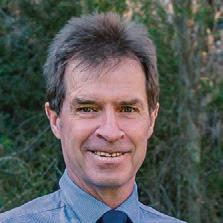









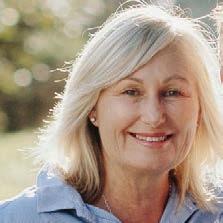







































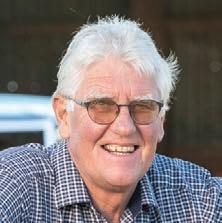
| LIFESTYLE | RESIDENTIAL If you are looking to buy or sell property visit pggwre.co.nz and make contact with one of our nationwide expert locals today! We would like to thank all of our customers past and present, and wish everyone a safe and happy holiday season!
We
pggwre.co.nz Helping grow the country PGG Wrightson Real Estate Limited, licensed under the REAA 2008. RURAL
New Zealand,
live here too.
“Honest, professional and committed throughout the whole process”
“Here is an agent who is knowledgeable, experienced, trustworthy in the extreme, and empathetic”
“Provided an excellent service in selling our farm and negotiating the purchase of our new site” 24
“The agent makes the difference; we had an excellent one”
•

• Features include free draining volcanic soils, well positioned 20 aside one person cowshed, 200 cow covered feed pad and a well loved three bedroom family home.

• With production averaging over 70,000 kg/ms, this is a very economical first farm that grows plenty of grass.

• If this farm sounds like you then Call Les on 0274 420 582 to inspect.

• P.S. You might be surprised as to what’s on
• Situated on Makirikiri Road, Marton is this exceptionally well looked after 95 hectare dairy farm.

• Features a very good 32 bale FoxPac cowshed with 24 sets of cups and a 300 cow yard.

• Very good four bedroom family home and additional disused cottage.
• Bore supplies water to house, cowshed and stock troughs.
• Soils are a mix of Marton clay, and Crofton and Marton silt loams that have been well fertilised.


• Includes covered feed barn/pad, 5 bay machinery shed along with a good range of other outbuildings.
• This is your chance to buy a well laid out unit in a great location.

• Call Les on 0274 420 582 to inspect.

PGG Wrightson Real Estate Limited, licensed under REAA 2008 Helping grow the country pggwre.co.nz/ASH36606 EXCLUSIVE ASHBURTON Chertsey Kyle & Lambies Roads 'Inverell' - Arable & Dairy Support with Scale
337ha arable and dairy support property offered for sale for the first time in 102 years. Options to walk in and farm or further develop
Acton water and
•
Spray irrigated with combination of
ground water with long term consents
grain storage
ALU completed allowing for wintering of over 1,250 cows plus some young stock and sheep DEADLINE PRIVATE TREATY Plus GST (if any) (Unless Sold Prior) Closes 3.00pm, Tuesday 24 January E tim.gallagher@pggwrightson.co.nz M 027 801 2888 Tim Gallagher RURAL | LIFESTYLE | RESIDENTIAL Follow us Be a part of NZ’s biggest agricultural community and help create a better future farmersweekly.co.nz 25 FARMERS WEEKLY – farmersweekly.co.nz – December 19, 2022 Real Estate 25 Thank you for your ongoing support and business. Wishing you a Merry Christmas and a Happy New Year from the Team at Sallan Realty. Sallan Realty COULD YOU GET STARTED HERE? We have a client looking to grow their business within South Taranaki. FIRST CLASS FARM
• 2.5ha storage pond. Two pivots and the balance rotorainer plus back up Lincoln linear Other improvements include cattle yards, woolshed, sheep yards and over 895T of
•
• Very nice flat to rolling 81ha dairy farm on the outskirts of Eketahuna.
Situated 45 minutes to Palmerston North and 25 minutes to Masterton, you can enjoy this central location in a summer safe area.
They are looking for a 500-600 cow dairy farm with good infrastructure including a rotary dairy and excellent soil. If you can help please call Les 0274 420 582
offer.
LK0114312©
Your
Sales
CALL 0800LESCAIN Licensed Agent REAA 2008 PLEASE HELP
Google ‘Sallan Realty’
Farm
Specialist
1983. His property, Pukemiro Station in the Otope Valley near Dannevirke, was gifted for charitable purposes with a particular focus on the training and education of persons in farming. Since 2003 the Trust has purchased additional properties which have been combined and now comprise a 1,630 ha effective farming operation, across two stations (30 minutes apart).
The Trustees have set up an Agricultural Training Cadetship to provide on farm training accepting three Cadets each year for a two-year training programme. There is an Academic Tutor who assists the Cadets with theory.



THE OPPORTUNITY…
Pukemiro Station is a well-established farming operation with a history of proven production and financial performance. The Operations Manager role offers a fantastic opportunity to lead this farming business that hosts one of New Zealand’s agricultural cadetships. Reporting directly to the Trustees, the Operations Manager will be responsible for the planning, management, and day-to-day running of the farming operation in a way that will drive physical performance resulting in financial growth.
A BIT ABOUT YOU…
The Trust are looking to appoint an Operations Manager who enjoys organising and planning, but who will also collaboratively include the team and the Cadets, allowing them to offer input and develop their skills. A key function of this role is to have visibility of the full farming operation while leading the strategic direction on behalf of the Trust. You will also have:
• Excellent understanding of the fundamentals of farming and a high level of general skills.
• Strong grasp of feed quality and supply/demand.

• Well-rounded communication and relationship building skills.
• Excellent stockmanship and dog handling skills with a team of 3-4 working dogs.
• Ability to utilise technology and modern systems for accurate recording and analysis of on-farm data.
• Proficient in financial management & budgeting.








• A passion and desire to mentor and train young people.

ON OFFER…


The location of Pukemiro Station provides ample opportunities for schooling, work and recreation, with Dannevirke just ten minutes away. There are school buses from the gate to local primary and secondary schools. The local community is a very active and welcoming with plenty of social activities. Included in the excellent total remuneration package is a large four-bedroom home with a heat pump and two log fires, set in established grounds. If you are passionate about developing and mentoring the future farmers of New Zealand’s agriculture sector, we want to hear
DOGS FOR SALE
2½-YEAR-OLD Huntaway bitch. Big bark, very keen to work. 6-MONTH-old Heading bitch. Phone 027 243 8541. Taihape. BROKEN-IN HEADING bitch, 2 yrs 4 months, will do plenty of work. B Burke. Phone 06 343 9561.
HUNTAWAY AND HEADING dogs. Deliver NZ wide. www.youtube.com/user/ mikehughesworkingdog/ videos - 07 315 5553.
PARAPARA/MAKIRIKIRI
GOATS WANTED
FERAL GOATS WANTED. All head counted, payment on pick-up, pick-up within 24 hours. Prices based on works schedule. Experienced musterers available. Phone Bill and Vicky Le Feuvre 07 893 8916.
GOATS
PUMPS
HIGH PRESSURE WATER PUMPS, suitable on high headlifts. Low energy usage for single/3-phase motors, waterwheel and turbine drives. Low maintenance costs and easy to service. Enquiries phone 04 526 4415, email sales@hydra-cell.co.nz


RAMS FOR SALE

WILTSHIRES-ARVIDSON. Self shearing sheep. No1 for Facial Eczema. David 027 2771 556.

2T FULL SHEDDING Wiltshire Rams for sale. All rams brucellosis tested negative. For more information please ring Kevin New 07 878 4758.
HAIR SHIRE® Low input meat rams! www.organicstud. nz 027 225 5283. tim@ organicstud.nz




RURAL MASSAGE
RELAXING FULL BODY massage in rural Ohaupo. Unwind. De-stress. www. ruralmassage.co.nz or call 027 529 5540.
STOCK FEED
MOISTURE METERS

Hay, Silage dry matter, grain. www.moisturemeters.co.nz 0800 213 343.




WANTED TO BUY
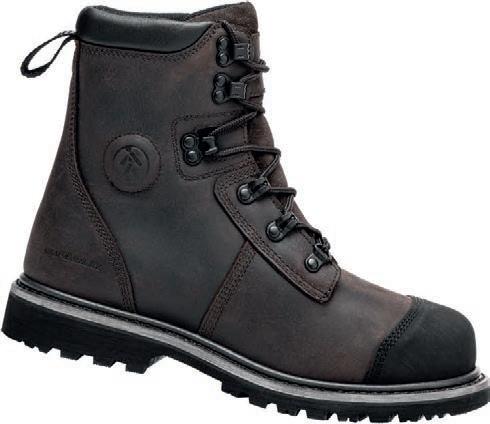
HORTICULTURE


ATTENTION FARMERS
STD CLUBS annual sheep dog sale on Sunday 22nd January 2023 at 966 Ruatangata Road, Whangaehu. Sign posted from SH3. Auction 12 noon, viewing from 10.30am. Register dogs for sale with secretary Brenda O’Leary, email brenda. dog@inspire.net.nz, Phone 06 342 7508. All enquiries to Duncan Atkinson Phone 06 342 6807 or Auctioneer, Chris Hay Phone 027 632 7177.

to recovery. Set in 7 hectares of native bush it o ers a private and healing place to be. Phone 0800 276 237 or email: reception@theretreatnz.org. nz Website: https://www. theretreatnz.org.nz
YOUNG HEADING DOGS, top bloodlines, starting to work stock. Checkout our website www. ringwaykennels.co.nz Ringway Kennels. Phone 027 248 7704.
LEASE LAND WANTED
WHAT’S SITTING IN your barn? Don’t leave it to rust away! We pay cash for tractors, excavators, small crawler tractors and surplus farm machinery. Ford –Ferguson – Hitachi – Komatsu – John Deere and more. Tell us what you have no matter where it is in NZ. You never know.. what’s resting in your barn could be fattening up your wallet! Email admin@ loaderparts.co.nz or phone Colin on 0274 426 936 (No texts please)
SAWN SHED TIMBER including Black Maire. Matai, Totara and Rimu etc. Also buying salvaged native logs. Phone Richard Uren. NZ Native Timber Supplies. Phone 027 688 2954.
BIRDS/POULTRY
PULLETS HY-LINE brown, great layers. 07 824 1762. Website: eurekapoultryfarm. weebly.com – Have fresh eggs each day!!!
$160* $150* valued at $320 valued at $280 New Zealand owned & operated NEW - WIDER TOE BOX for improved downhill comfort NEW - WIDER STEEL CAP ** for improved toe comfort NEW - KEVLAR PENETRATION RESISTANT SOLE ** for lightweight safety NEW - 250 DEGREE HEAT RESISTANT OUTSOLE NEW - BALL BEARING SPEED LACING for greater comfort & adjustability NEW - FLEXIBLE RAND for less stress on the instep & leather NEW - STRONGER OUTSOLE STITCHING for strong rand to midsole connection NEW - STRONGER MIDSOLE NEW - STRONGER FORESTRY GRADE SHANK for greater support & overall strength (**safety models) $109 $99 $88 BUY valued at $230 JACKET valued at $160 valued at $140 BIB OVERALLS LEGGINGS 100% Waterproof Flexible Fleece Collar Hood Visor Acid Resistant Durable Seams Stitched On Soles Plain Toe* or Steel Toe 175% more crack resistant than normal leather Buffalo Leather earthwalk.co.nz free shipping 0800 16 00 24 sizes: BOOTS 5 - 13 (NZ) RAINWEAR XS - 4XL 9am-5pm PHONE 175% more crack resistant NEW! BUFFALO BOOTS RAINWEAR SALE ends 31st Dec To find out more visit www.mowermaster.co Phone 0800 422277 or 028 461 5112 Email: mowermasterltd@gmail.com Topper / Finishing Mower Genuine 11.5HP Briggs & Stratton Motor. Electric start. Belt driven. Cutting Height 30mm - 300mm LK0114192© $4200 GST INCLUSIVE MOWER MASTER TOWABLE MOWERS Register to receive job alerts on www.ruraldirections.co.nz Operations Manager – Pukemiro Station LK0114334© A BIT ABOUT ADB WILLIAMS TRUST… ADB Williams Trust was established as a Charitable Trust by ADB (Don) Williams in
from you! For more information or to apply please visit https://bit.ly/3hia6y9 on our website. Applications close Sunday 15th January 2023 Only job seekers who have full NZ working rights will be eligible for this role. Heavy duty, long lasting incinerators Three sizes available Phone 021 047 9299 irontreeproducts.co.nz LK0112754© STOP BIRDS NOW! ZON BIRDSCARER EARMARKERS HOOF TRIMMER LK0114029© 26 Marketplace FARMERS WEEKLY – farmersweekly.co.nz – December 19, 2022 Marketplace 26 Xmas & New Year Special Buy $100 Code: Save10%; $200 Code: Save20% o +grab free pair www.thesocklady.co.nz FOR SALE DOLOMITE For a delivered price call .... NZ’s finest BioGro certified Mg fertiliser 0800 436 566 FLY OR LICE problem? Electrodip – the magic eye sheepjetter since 1989 with unique self adjusting sides. Incredible chemical and time savings with proven e ectiveness. Phone 07 573 8512 www.electrodip.com ANIMAL HANDLING CRAIGCO SHEEP JETTERS. Sensor Jet. Deal to y and Lice now. Guaranteed performance. Unbeatable pricing. Phone 06 835 6863. www.craigcojetters.com www.drench.co.nz farmer owned, very competitive prices. Phone 0800 4 DRENCH (437 362).
HEALTH ARE YOU OR a loved one battling the e ect of alcohol or drugs? The Retreat NZ is a discreet residential facility o ering a 30 programme
ANIMAL
WANTED. All weights. All breeds. Prompt service. Payment on pick up. My on farm prices will not be beaten. Phone David Hutchings 07 895 8845 or 0274 519 249. Feral goats mustered on a 50/50 share basis.
richest source
natural iodine. Dried
use
promotant
food.
Calendar. Orders
NZ KELP. FRESH, wild ocean harvested giant kelp. The world’s
of
and milled for
in agriculture and horticulture. Growth
/ stock health
As seen on Country
to: 03 322 6115 or info@nzkelp.co.nz
DAIRY OR GRAZING. Rangitīkei / Manawatū through to HB. Regenerative farming practiced. Open to developing land in partnership. Phone Michael 027 223 6156.
Advertise with us Call Debbie 027 705 7181 12 MONTHS TO 5½-yearold Heading dogs and Huntaways wanted. Phone 022 698 8195. DOGS WANTED ACCURATE AND PRACTICAL farm maps showing area sizes of paddocks and vegetation.
for a free quote. FARM
HEADING PUPS, Sire ‘Scope’ #23810. Sire ‘Brodie’ #21873. Dam ‘Pat’ by ‘Dick’ #22258 out of ‘Joy’, half sister to ‘Harry’. Dam ‘Xena’ by ‘Deal’ #17986 out of ‘Jess’ #21838. Jess is line-bred to I. M. Anderson ‘Clyde’ #12992. 18-MONTH HUNTAWAY bitch. Unbroken but keen to work. 2-YEAR OLD Heading dog. Fully broken in, brother to ‘Xena’. Phone Dave Andrews. 0274 50 60 95. FOR ONLY $2.30 + gst per word you can book a word only ad in Farmers Weekly Classi eds. Phone Debbie on 0800 85 25 80.
Visit farmmapping.co.nz
MAPPING
•
PRELIMINARY NOTICE
Dannevirke Ewe Fair
Dannevirke
SOUTHERN SHEDDING SHEEP SALE, GORE
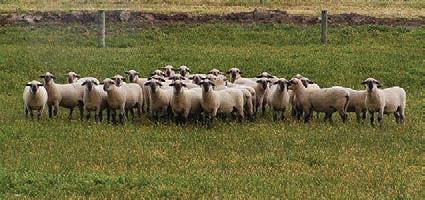

•
Auctioneers note:
•
• FE tolerant
• Ewes have had Toxo & Campy shots and given a Salmonella shot as 2th’s




•
•
Patearoa Road, Ranfurly, Central Otago Grant Kean, Enfield Genetics 243 Hishon Road, Winton Southland
For more info, or to request a catalogue, or an alternative day to view the sheep , contact Callum McDonald (PGW) 027 433 6443
Barry Smith (vendor) 027 432 3438 Grant Kean (vendor) 027 428 4450
NZ’s Virtual Saleyard bidr.co.nz



Catalogues available from: www.goreapshowgrounds.co.nz Phone 021 585 525 E: goreapsecretary@gmail.com SOUTH ISLAND PREMIER STUD RAM AUCTION Tuesday 17 January 2023 11. 30am – Romney & Border Leicester 1.30pm – Southern Texel Ram Sale Other Breeds – Texel, Suffolk, Poll Dorset, South Suffolk, Dorset Down and Southdown Rams Blackdale 85/20 Gore A&P Association’s LK0114246© Freephone 0800 10 22 76 www.pggwrightson.co.nz Helping grow the country Opawa Downs 10th on farm sale. 1299 Mt Nessing Road, Albury, South Canterbury | Commencing 12 Noon Comprising: • 1500 Romney Cryptorchid Lambs • 200 Romney Ewe Lambs 3300 Black Face Prime & Forward Store Mixed Sex Lambs 300 CFA Ewes 250 2th Motu-nui Romney Ewes Enquiries: Cameron Gray (PGW) 027 494 0572 Joe Higgins (PGW) 027 4314 041 To be sold following above at DJ&AM IRVING, Albury • 1500 Coopdale Wether Lambs 2500 Coopdale/Suffolk/Texel x Mixed Sex Lambs 250 Coopdale Ewe Lambs 400 Annual Draft Coopdale Ewes (All of the above are NZFAP & ABF Accredited) Enquiries: Rod Sands (PGW) 027 4314 043 Joe Higgins (PGW) 027 4314 041 To be sold following Albury Sales RODWELL FARMING “ROCKLANDS” 51 Tondros Road, Fairlie 2200 Terminal x Prime & Forward Store Mixed Sex Lambs • 400 Romney/Texel Crypt Lambs • 400 Romney/Texel Ewe Lambs (Suitable for breeding) 500 CFA Romney x Ewes (The above lambs have had 2 - 5 in1 vaccinations and one oral drench & Dipped prior to sale. All lambs will be outside of all with holding periods) Enquiries: Cameron Gray (PGW) 027 494 0572 George Mannering (Hazlett) 027 4620 182 Joe Higgins (PGW) 027 4314 041 ON FARM LAMB & EWE SALES ALBURY/FAIRLIE, SOUTH CANTERBURY WEDNESDAY 11 JANUARY, 2023 Freephone 0800 10 22 76 www.pggwrightson.co.nz Helping grow the country 2nd Annual Ram Sale Tuesday
2023
| Gore Showgrounds Sale
24th January,
1.00pm
will also be livestreamed via Willowglen and Enfield Genetics will offer fully SIL recorded 2th Rams. Open Day will be held on Farms for the 2 Vendors Thursday 12th January from 1.00pm – 4.00pm. Approx: 10 ½ Aussie White, ½ Wiltshire Rams 40 Wiltshire Rams These Rams will offer potential Purchasers the opportunity to purchase long term (10+ years ) performance recorded shedding genetics. Come along, check out the two farming operations, and see what these sheep can offer. Barry Smith, Willowglen Genetics Hillview 288 Ranfurly –
Sale Yards 12
STOCK
TE MAIRE FARM Tourere Road,
a/c S
&
January 2023 11.30am CAPITAL
EWE SALE
Flemington
Robinson
J Wyn-Harris
1200
800
1500
500
Approx 4000 Romney Coopworth ewes comprising of:
2th ewes
4th ewes
6th-4yr ewes
5yr ewes
Due to farm sale. No ewes sold prior to sale
This is a genuine opportunity to purchase capital stock ewes with proven performance
Marlow bred Tier 1 Coopworth rams purchased and used since 2017
5yr flock average scanned 167% with the 5yr ewes tupped 4 March & 2th-4yr tupped 10 April
LK0113878© Upcoming Auctions SATURDAY 7 JANUARY 1pm Foveran Deer Park 40th Annual Elite Sire Stag Sale SATURDAY 8 JANUARY 1pm Peel Forest Estate Annual Stag Sale 2023 4.30pm Deer Genetics NZ 2023 Sire Stag & Elite Hind Sale MONDAY 9 JANUARY 11am Raincliff Station Annual Elk/ Wapiti Terminal Sire Sale 2023 12pm Puketoro Station 7th Annual On-Farm Sale 4pm Rothesay Deer Stag Sale WEDNESDAY 11 JANUARY 1.30pm Netherdale Deer Annual Elite Red Deer Sale 5pm Brock Deer 2023 Stag Sale THURSDAY 12 JANUARY 12.30pm Arawata Red Deer Stag Sale 5pm Altrive Red Deer Sale FRIDAY 13 JANUARY 1pm Craigneuk Ducan Dorset Down & South Dorset, Half-Bred Ram Sale 2pm Wilkins Farming Stag Sale MONDAY 16 JANUARY 3.30pm Tikana Wapiti Stag Sale Regular Livestream coverage of seven North Island Saleyards. bidr.co.nz CRAIGNEUK Annual on Farm Sale Friday 13th January 2023 On offer 280 Rams Made up of 200 Terminal Rams • Dorset Down X lambs growing 500 to 600 grams a day from birth to weaning • South Dorset Rams for quick maturity • SIL Recorded and Studfax • Autumn Scan 80 Maternal Halfbred and Quarterbred Rams Merino Ram/Romney Ewe MILK • WOOL • MEAT Bred to fit the Smartwool Contract 20-25 micron Grown in the harsh Maniototo climate Enquiries to: Johnny Duncan 027 327 2372 or email: JDuncan.Craigneuk@xtra.co.nz LK0113881© 27 Livestock FARMERS WEEKLY – farmersweekly.co.nz – December 19, 2022 Livestock 27 New Zealand’s Leading Livestock Agency pggwrightson.co.nz Freephone 0800 10 22 76
FECRT Parasite data available on request Enquiries: Matt Lorck 027 206 4373 Jason Wyn Harris 027 710 9426
EXPRESSIONS OF INTEREST


– Capital Stock Meat Goats


New Zealand Meat Goat Genetics offer an opportunity to farmers who are interested in farming meat goats for local or export trade.
NZMGG (Branded as Mana Meat Goat & Shingle Creek Chevon) have been breeding a composite meat goat. This herd has had significant selection pressure from a large breeding base targeting sound constitution, fertility, worm resilience, good feet, weight gains, DNA testing and some breeding records available.


Offer available
To purchase Capital Stock 400 Does, made up with 43 Pure Boer Does MA, 307 Does Mana Meat Goats MA, 50 Does Mana Meat Goats hgts, 18 Pure Boer & Mana Meat Goat bucks to pick from.
WAIKATO
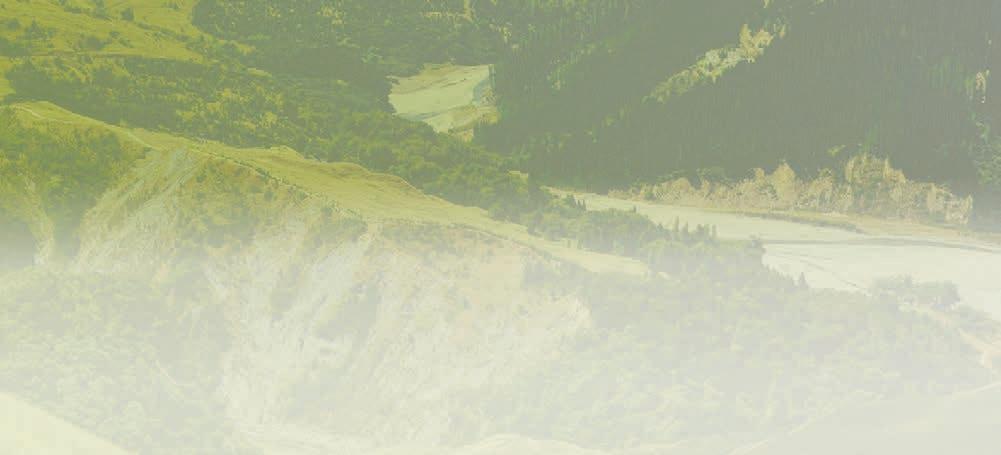



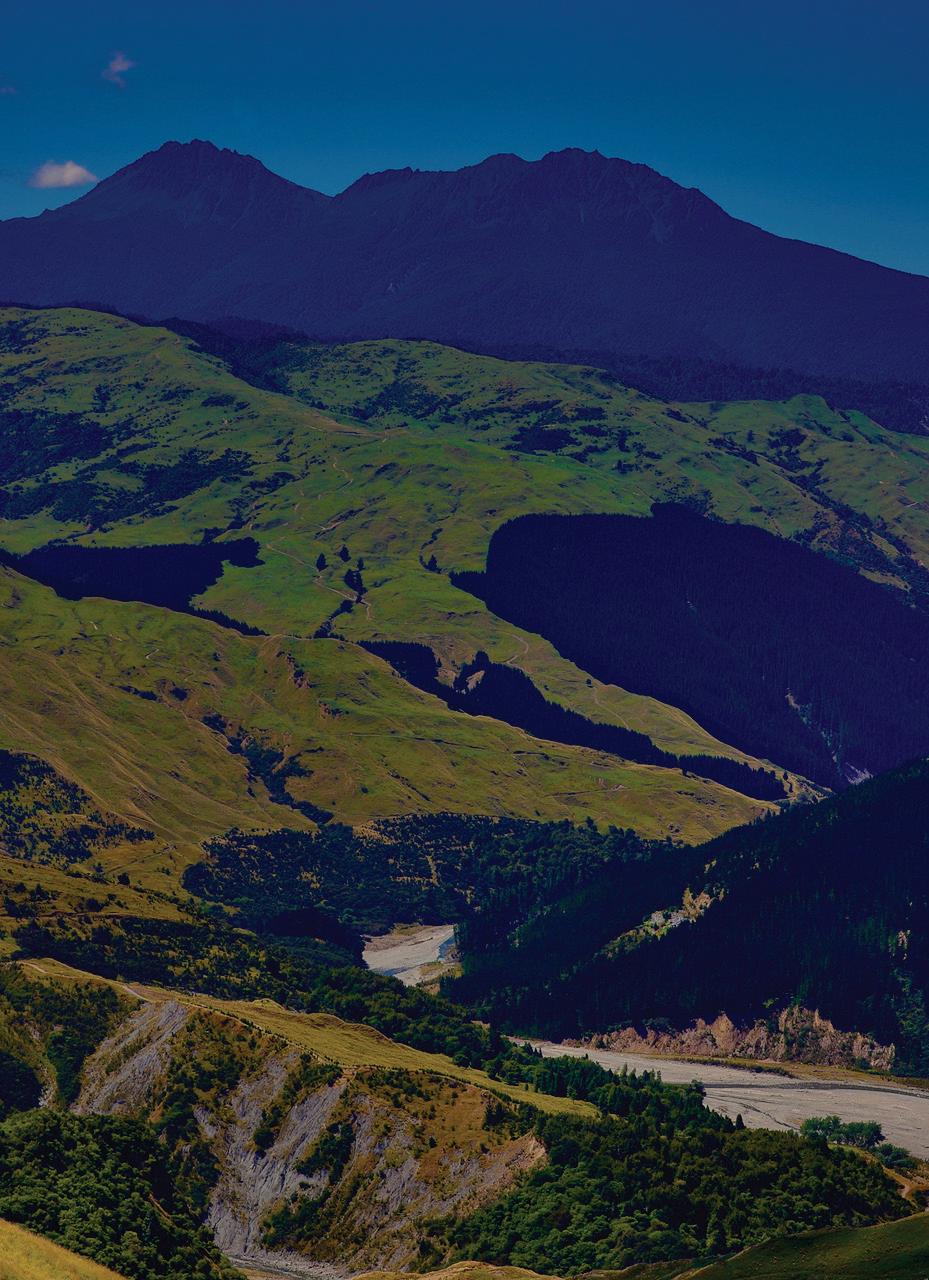
UPCOMING SALES
JANUARY
2023
MORRINSVILLE BONER & BULL SALE
Friday 6th January 2023

FRANKTON SHEEP & PIG SALE
Tuesday 10th January 2023
FRANKTON CATTLE SALE
Wednesday 11th January 2023
FRANKTON DAIRY BEEF SALE

MORRINSVILLE BULL SALE
Thursday 12th January 2023
MORRINSVILLE BONER & BULL SALE


Friday 13th January 2023
Everyone at NZ Farmers
Livestock wants to wish you a Happy Christmas and prosperous New Year. Season’s greetings from the entire team at NZ Farmers Livestock.




TE KUITI SELLING CENTRE
UPCOMING JANUARY 2023 SALES


TE KUITI BULLOCK FAIR
Wednesday 4th January 2023 1015 x 2 1/2Yr Ang, Exotic & Hfd/Frs X Steers
TE KUITI 15MTH EXOTIC STEER FAIR
Thursday 5th January 2023 780 x 15mth Sim, Char, South Dev X Steers
TE KUITI 15MTH TRADITIONAL STEER FAIR
Friday 6th January 2023 1000 x 15mth Ang, Ang/Hfd X, Hfd Steers
TE KUITI 15MTH HFD/FRSN & ANG/ FRSN X STEERS

Monday 9th January 2023 900 x 15mth Hfd/Frsn & Ang/Frsn X Steers
TE KUITI 15MTH HEIFER FAIR Tuesday 10th January 2023 900 x 15mth Ang, Sim, Char, Hfd/Frs X Heifers
LK0114338©

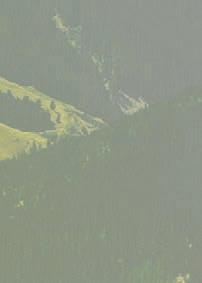
TE KUITI 2TH EWE FAIR
Friday 13th January 2023 5200 Ewes Comprising: 2350 x 2th Rom & Romdale Ewes 1000 x 2th Perendale Ewes 1850 x 2th Coopworth Ewes
LK0113740© LK0114323©
6300Sheep/80015mthSteers 80CowswithCalvesatFoot 20002ToothRomdaleEwes,18002ToothCoopdaleEwes 20005YearRomdaleEwes,500M/ARomdaleEwes 80015MonthAngusSteers(350to430kg) 8010yrAngusCowswithAngusCalvesatfoot Theflockdocked142%EwestotheRamthisyear TheSteersareeligibleforAngusPure AngusBloodlinesincludeTurihaua,Ngaputahi, Totaranui&SevenHills GAP&NZFAPAccredited-ABFree 1.5%Rebatebyarrangement.(SignPosted)fromTokomaruBay Lunch&Lightrefreshmentsprovided OnlineBiddingviaBidrwillbeavailable Contact:ShaneScott0274956031forfurtherenquiries FullDetailsonourWebsiteorFacebookCentralLivestockLimited Wiltshire Dispersal Sale Stortford Lodge Saleyards 7th Feb 2023 at 11.30 Approximately 28 years of breeding This sale will be livestreamed and online bidding offered on bidr.co.nz Vendor Mary Taylor – Ph: 06 855 5322 Email: taylors@glenbraestud.co.nz www.glenbraestud.co.nz Enquiries: Simon Smith – 027 444 0733 Tom Sutter – 027 446 9967 Sam Wright – 027 447 9035 450 2th ewes 300 4th ewes 300 6th ewes 500 MA ewes 100 C.F.A. ewes 1000 ewe lambs 20 Ram lambs 6 M.A Rams LK0114080© LK0107112© LINK LIVESTOCK FOR SALE WAIKATO Autumn calving cows 200 x Frsn BW 124, PW 202, will split to smaller lines. Very tidy cows. 360x Predom Jersey cows BW 175, PW 201, will split to suit. Very good type. Ph Nigel Riddell 027 434 3153 FOR SALE NORTHLAND TOP HERD! 423 cow XBred Herd BW 276, PW 345, RA 100% Calving from 08/07/2023 420MS/cow, System 3 130x CRL I/C Heifers also available BW 362, PW 361. EXCLUSIVE TO LINK LIVESTOCK. All enquiries to Grant Aiken Ph 027 245 8821 FOR SALE WAIKATO Part line of WEANER JsyX heifer calves from TOP herd, LINE BW 284, PW 280 (27 head). Immediate delivery. Ph Tania White 027 220
310 cow Xbred
Calving
80 x
BUYING A HERD/SELLING A HERD? Call
to discuss options. For a full list of listings & services go to our website at www.linklivestock.co.nz WISHING YOU ALL A MERRY XMAS & A PROSPEROUS 2023 FROM THE TEAM at LINK LIVESTOCK
1799 FOR SALE WAIKATO HERD
Herd BW 197, PW 240, R/A 99%
from 12/07/2023, 6 weeks AB, Avg 374ms/ cow, SCC 80,000 . Ph Jason Duncan 021 170 5354 FOR SALE
Jersey I/C Heifers Capital Line, BW 244, VERY well grown, calving from 03/08/23. 1st May Delivery. Ph Ross Riddell 027 211 1112
Stewart Cruickshank 027 270 5288
LK0114295© www.dyerlivestock.co.nz Ross Dyer 0274 333 381 STOCK REQUIRED 1YR BEEF HEIFERS 300-340kg 300-400kg 1YR BEEF OR FRIES BULLS 2YR ANGUS STEERS 460-540kg TERMINAL & MALE LAMBS 30-32kg 7000 MA YOUNGER EWES Jan Delivery FE Tol Preferably FOR SALE 1000 TOP ROMDALE 2 TOOTHS E info@rdlfinance.co.nz A Financing Solution For Your Farm
Minimum number to purchase is 50 does. A fixed meat price schedule is also an option. Also available for sale – 250 wether kids & 260 female kids born Sept/Oct 2022. Deadline date to have expressions in by is 4pm 31 January 2023 Email john@scholefield.co.nz - or cell phone Dougal Laidlaw 021 339 055
Breeding
Bred for
Zealand
No housing required, black or white rams. Two tooths available immediately. Ram lambs available
late
POA. Please
Miles and
King info@kingsmeadecheese.co.nz or
478 1778 LK0114331© 28 FARMERS WEEKLY – farmersweekly.co.nz – December 19, 2022 Livestock 28
DairyMeade Sheep Ltd Rams for Sale
milking sheep for 24 years.
New
conditions.
from
January 2023.
contact
Janet
027
SALE TALK
How much did Santa pay for his sleigh?
Nothing – it was on the house.
What do donkeys send out near Christmas?
Mule-tide greetings.
A gingerbread man went to the doctor’s complaining of a sore knee.
“A sore knee?” the doctor said. “Have you tried icing it?”
How did the bauble know that she was addicted to Christmas?
She’d been hooked on Christmas trees all her life.
What do you get if you eat Christmas decorations?
Tinsilitis.
What do you call a blind reindeer? No-eye deer.
What do you call a blind reindeer with no legs?
Still no-eye deer.
How did Santa score the winning goal in their annual football game?
The Ghost of Christmas passed.
Minimum weight 18kg at delivery mid January. Minimum number
Puketi Angus Stud



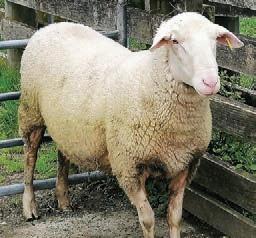
• Or perhaps you’re looking for a sound investment opportunity?


Look no further!
We come with an established 250 cow pedigree Angus herd, a full suite of modern machinery and no debt. We are seeking either long term land lease (>200ha) or land with equity partnership through which we can grow and develop our stud breeding operations. No debt means we have the financial means to maintain and even improve upon your property investment, as opposed to it just surviving on minimal input. Prepared to look anywhere in North Island for the right farm or opportunity. Full CV and references available.
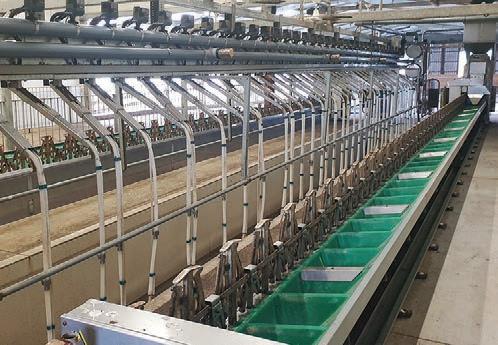



#1 Angus Stud in the country for Calving Ease, Birth Weight and Short Gestation Bulls
Selling
per
to Northland and Waikato Clients
80-100 bulls
year
Current land lease ends in June 2023 • Do you have quality farmland that you’re not sure what to do with?
• Perhaps you would like to retire, don’t want to sell, but don’t have family willing or able to take over management of the land?
If interested, please contact Craig Davie-Martin on
733 765 for a conversation in full confidence – or email mvpagriculture@gmail.com LK0114250© L IVEsTOCKEXPORTERs C U R R E N T L Y P U R C H A S I N G
Saanen
0274
British Alpine Buck & Doe Kids
Doe Kids Toggenburg Buck & Doe Kids
All animals must meet export protocols. Top money paid. Enquiries
Paul
027 438 1623 www.austrex.com A UsTREX NZ LTD ELITE DAIRY RAMS TALLA FARM Top imported genetics Milk records available East Friesian and Lacaune Email jill@talla.co.nz Ph Art 027 419 8768 or Jill 027 419 8760 LK0114174© Mataro Wiltshire’s have been breeding for eczema tolerance since 1989. On the eczema prone hills of Taranaki these Rams are breed tough and ready for any climate. For more information contact: Curtis Lockley 022 412 0660, 06 752 3084 LK0114245© LK0113104© TUAKAU SALEYARD JANUARY SALES/FAIRS TUAKAU HEIFER SALE Thursday 5th Jan 2023 @ 12pm A/c OJ & M Cathcart 19th Annual Heifer Sale 800 x 15mth Heifers Comprising of approx. 280 Angus 230 Charolais 160 BWF 50 Exotic X 70 Hereford Heifers sourced from sales and private purchases. TUAKAU BEEF 15mth STEER FAIR Tuesday 10th January 2023 @ 12pm Comprising of 1200 Beef Bred Steers 700 Angus 400 Charolais 100 Angus Hereford & Exotic ANNUAL DRAFTS FROM: Kauri Ridge OJ & M Cathcart T Baldwin Culverden Holdings I & K Evans TUAKAU DAIRY BEEF STEER FAIR Thursday 12th January 2023 @ 12pm Comprising of approx: 430 R2 BWF 100 x R2 Ang X ALL ENQUIRIES TO: Craig Chamberlain 027 532 0253 Dave Anderson 027 498 1201 or Tuakau Office 09 236 9882 18th January 12pm 47 Symonds Road, Waipara · 250+ 2th Wiltshire Ewes · 250+ AD Wiltshire Ewes · 1500+ Wiltshire Ewe Lambs · 16 2th Wiltshire Rams Contact: Dave Wooldridge: 027 259 4859 Callum Dunnett: 027 462 0126 Alex Horn: 027 5918 449 Alby Orchard: 027 534 5753 www.mtcass.co.nz Mt Cass Wiltshires Ewe & Ram Sale Check out Poll Dorset NZ on Facebook LK0112874© FOR SALE Sheep or Goat Milking Plant 40 ASIDE SWING-OVER HERRING-BONE • Includes stalls feed system milk line • Milk silo 11000 litre with refrigeration • Plate cooler • Snap chill • Vacuum pump • Auto cleaning system • Gas hot water heater PHONE 027 443 0311 Price does not include dismantling Pick up available from Palmerston North, Manawatu HALF NEW PRICE $160,000 PLUS GST LK0114343© 29 FARMERS WEEKLY – farmersweekly.co.nz – December 19, 2022 Livestock 29 Advertise with us Call Andrea 027 602 4925
20HD.
to:
Tippett
Markets
A year of huge highs and lows
Sarah Hilhorst MARKETS Beef and lamb

THIS year can only be described as a whirlwind. Farmers experienced historical highs and lows within six months of each other. Ups and downs are frequent in the industry, but such extravagant changes will not be a ride most want to experience again.
War, flooding, droughts, Covid restrictions, lumpy skin and foot and mouth disease threats were all experienced this year. Combined with rule and legislation changes, increased overheads and costs, staff shortages and backlogs, farmers’ resilience has been truly tested. The end of this year will come as a bit of a relief.
The first quarter of the year started off fairly positive for most. The outliers to this were Waikato and Southland, which were experiencing drought. This resulted in poor growing conditions for both lamb and cattle. But the wheels were generally intact and exporters were relishing the exceptionally



strong prices. Omicron was also a culprit for backlogs arising in cattle processing. While Omicron was toying with supply chains and limiting processing capacity, the low volumes of lamb encouraged high export prices. In fact, February produced the highest average export value on record for lamb at $13.28/kg, with exporters at the time describing making sales as “child’s play”.

Coming into the second quarter, internationally, the US was in a drought and recorded the highest beef kill since 1990. While most global economies were re-opening, China was about to start the beginning of its yearlong series of covid lockdowns. Despite increased beef supplies, overseas pricing remained steady and the NZD:USD was at its lowest
point since 2020. This helped support some good export returns as hospitality sectors started increasing demand.
Come May, the industry was feeling positive. There was no change to beef, and winter contracts of lamb were talking as high as $10/kg. But there were signs from China that this might not be the way it stayed. In April China took only 35% of New Zealand lamb exports, the slowest it had been for 10 years.
This was the first real sign that
things could be about to turn.
From August onwards NZ experienced one of the longest and wettest ends to winter for several years. This flowed into spring and resulted in low and delayed growth rates in livestock. Export trade was showing signs of being overstocked and lamb in particular was at a low trading point. All the confidence that had been ignited was beginning to fade, despite slaughter prices still at historical highs of $9.00-$9.30/ kg. Cattle farmers were taking less of a hit, though, as export prime and local trade was up to $7/ kgCW.
From October onwards is where it got troublesome. European and Chinese lamb and mutton buyers stayed dead quiet after the winter lull due to a mixture of China’s

lockdowns and inflation stalling consumer lamb buying. Before we knew it prices were in free-fall, and have been pulling schedules down swiftly since. Beef was more resilient, but that was partly due to the low exchange rate, which has since lifted. In saying this, lamb slaughter prices as of midDecember were only 15-20c/kg below the five-year average, and export prime 35c/kg higher.
So although the year is finishing on a gloomy note, overall pricing could definitely be worse. It’s been a huge year and uncertainty hangs over everybody, but the industry is resilient and has weathered similar storms before. On behalf of AgriHQ we want to thank you for your ongoing support and wish you a safe and happy festive season.
STOCK SALE END OF YEAR TITAN MANUAL CRUSH Parallel squeeze & Integrated Loadcells WAS $30,400 NOW $23,900+gst CLASSIC VETLESS CRUSH With 3 piece side gates and rubber floor WAS $15,750 NOW $12,750+gst LENTA HOOF CRUSH Make hoof inspection easier! WAS $14,250 NOW $12,250+gst In stock and ready for immediate dispatch - Free delivery to your farm! Call us direct on 0800 837 274 See the full range on sale at www.tepari.com/stock-sale While stocks last! CATTLE GATES Most common sizes in stock CALL FOR SIZES 15% off all in stock 30 Markets
Proudly sponsored by
SILENT SPRING: Trouble was in the air from October onwards, when European and Chinese lamb and mutton buyers stayed dead quiet after the winter lull.
Ups and downs come with the job, but no one is in a hurry to repeat a year of such market extremes – or such a pummelling from domestic and global challenges.
Although the year is finishing on a gloomy note, overall pricing could definitely be worse.
Weekly saleyards
Stortford Lodge was the first saleyard to test the water with an early ewe fair, held last Tuesday. It was supported by good feed levels and a smaller yarding – the 4200 recorded was the lowest tally for this fair since AgriHQ started collecting data in 2009. But it did not benefit from falls in mutton and lamb schedules, and prices were back around $60 on last year. The top price was $201 for a line of quality Romney 2-tooths, and most mixed-age and 5-year ewes traded at $130-$153.
Frankton | December 14 | 422 cattle
$/kg or $/hd
2-year dairy-beef steers, 459-466kg 2.92-2.93
2-year Angus steers, 443-462kg 2.94-3.02
2-year Hereford-Friesian steers, 444kg 3.19
Yearling Angus steers, 216-274kg 3.50-3.61
Yearling dairy-beef steers, 310-321kg 3.33-3.39
Yearling Hereford-Friesian heifers, 303-321kg 3.05-3.14
Aut-born weaner Murray Grey-Friesian heifers, 153kg 585
Weaner Hereford-Friesian steers, 109kg 665
Weaner Hereford-Friesian heifers, 113kg 550
Tuakau
2-year dairy-beef steers, 400-600kg 3.10-3.40
2-year dairy-beef heifers, 350-420kg 3.10-3.36
Yearling steers, 250-350kg 3.40-3.70
Yearling heifers, 250-350kg 3.20-3.50
Tuakau
Store lambs, all 40-90
Prime ewes, all 40-110
Prime lambs, all 120-160
Tuakau
Prime steers, 500-750kg 2.80-2.97
Prime bulls, 600-750kg 3.00-3.39
Prime heifers, 420-550kg 2.85-2.97
Boner cows, 420-550kg 1.80-2.21
Rangiuru | December 13 | 374 cattle, 165 sheep $/kg or $/hd
Yearling Hereford-Friesian steers, 368-400kg 3.29-3.35
Yearling Hereford-Friesian heifers, 309-360kg 3.04-3.24
Prime Angus steers, 623-746kg 2.82-2.87
Prime Hereford bulls, 440-605kg 2.75-3.00
Boner Friesian cows, 490-528kg 1.66-1.86
Prime ewes, all 52-100
Frankton | December 13 | 543 cattle $/kg or $/hd
2-year dairy-beef steers, 461-496kg 2.78-3.01
2-year Hereford-Friesian (red) heifers, 330-397kg 2.65-2.66
Yearling dairy-beef steers, 332-457kg 960-1330
Yearling dairy-beef heifers, 262-356kg 800-1060
Prime exotic cows, 464-598kg 2.11-2.17
Prime dairy-beef steers, 503-595kg 2.75-2.95
Prime traditional bulls, 511-637kg 2.89-3.10
Prime Jersey bulls, 335-488kg 1010-1270
Boner Friesian cows, 492-588kg 1.69-1.94
2-year dairy-beef heifers, 428-445kg 2.73-2.79
Yearling dairy-beef steers, 315-370kg 3.24-3.30
Yearling dairy-beef heifers, 309-329kg 2.91-2.98
Prime dairy-beef steers & bulls, 488-787kg 2.90-2.99
Te Kuiti | December 9 | 452 cattle
2-year beef & dairy-beef steers, 489-592kg
$/kg or $/hd
3.01-3.09
2-year Friesian steers, 454kg, one line 2.73
2-year Hereford-Friesian heifers, 421-440kg 2.67-2.84
Yearling traditional steers, 282-448kg 3.13-3.23
Yearling Hereford-Friesian heifers, 292-315kg 3.05-3.12
Matawhero | December 9 | 522 sheep
$/kg or $/hd
Store shedding male lambs, good 105-107
Store shedding ewe lambs, medium 92
Prime 2-tooth Romney ewes, all 121-145
Taranaki | December 14 | 451 cattle
$/kg or $/hd
2-year dairy-beef steers, 356-492kg 2.99-3.04
2-year dairy-beef heifers, 355-451kg 2.72-2.84
Yearling Charolais-cross steers, 255kg 3.43
Yearling Hereford-Friesian steers, 361-365kg 3.23-3.30
Yearling Jersey bulls, 322-424kg 1270-1400
Yearling Speckle Park-cross heifers, 272-297kg 3.27-3.30
Stortford Lodge | December 12 | 1273 sheep
$/kg or $/hd
Prime ewes, very good to very heavy 118-177
Prime ewes, medium to good 97-117
Prime ewes, light to light-medium 75-93
Prime lambs, heavy 152-186
Prime lambs, good 122-127
Stortford Lodge | December 13 | 4177 sheep
$/kg or $/hd
2-tooth Romney ewes, top line 201
Mixed-age & 5-year Romney ewes, good 146-153
Mixed-age Romney ewes, medium 117-140
Mixed-age Romney ewes, light 84-85
Stortford Lodge | December 14 | 584 cattle, 1896 sheep $/kg or $/hd
2-year Angus & Angus-Hereford steers, 446-469kg 3.61-3.67
2-year Angus steers, 429-533kg 3.25-3.36
Yearling Angus & Angus-Hereford steers, 395kg, one line 4.16
Yearling traditional steers, 266-392kg 3.72-4.00
Yearling Angus & Angus-Hereford heifers, 275-312kg 3.60-3.62
Yearling Angus heifers, 267-312kg 3.48-3.51
Aut-born weaner Simmental-Dairy bulls, 350-430kg 1245-1490
Store cryptorchid lambs, medium to good 83-105
Store mixed-sex lambs, small to medium 67-86.50
Store ewe lambs, medium 75-84
31
Wellsford | December 12 | 442 cattle $/kg or $/hd
$/kg
| December 8 | 1000 cattle
or $/hd
| December 12 | 1600 sheep $/kg or $/hd
| December 14 | 320 cattle $/kg or $/hd
FARMERS WEEKLY – farmersweekly.co.nz – December 19, 2022 Markets 31
Dannevirke | December 8 | 1404 sheep
$/kg or $/hd
Store male lambs, all 92-102
Store ewe lambs, all 76-98
Store mixed-sex lambs, all 56-123.50
Prime ewes, all 26-100
Prime lambs, all 128-157
Feilding | December 9 | 1240 cattle, 6349 sheep
$/kg or $/hd
Mixed-age Angus cows & calves, medium 1600-1650
2-year traditional steers, 448-542kg 3.13-3.26
2-year Hereford-Friesian steers, 418-616kg 2.95-3.02
2-year Friesian bulls, 464-523kg 3.04-3.10
2-year Hereford-Friesian heifers, 363-487kg 2.92-3.00
Yearling Angus steers, 328-399kg 3.73-3.96
Yearling Hereford-Friesian steers, 303-445kg 3.18-3.37
Yearling Friesian bulls, 301-392kg 2.96-3.20
Yearling Hereford-Friesian heifers, 320-355kg 3.09-3.32
Store blackface mixed-sex lambs, heavy 110-120
Store blackface mixed-sex lambs, good 87-112
Store whiteface male lambs, good 76-93
Feilding | December 12 | 37 cattle, 3284 sheep $/kg or $/hd
Boner Friesian cows, 458-545kg 1.60-1.62
Prime ewes, good 95-129
Prime ewes, medium-good 72-89
Prime mixed-sex lambs, all 114-153.50
Rongotea | December 13 | 410 cattle $/kg or $/hd
2-year Hereford bulls, 540-598kg 2.96-3.03
2-year Friesian bulls, 393-507kg 3.05-3.16
2-year Hereford-Friesian heifers, 345-576kg 2.86-3.01
Yearling Angus-cross steers, 283-365kg 2.58-2.69
Yearling Friesian bulls, 285-300kg 2.32-2.52
Yearling beef-cross heifers, 258-260kg 2.63-2.72
Boner dairy cows, 415-492kg 1.45-1.73
BIG FINISH: These autumn-born weaner Simmental-Dairy bulls from Lynmar Farms, Sherenden, are always an impressive finish to the year at Stortford Lodge. Weaned the morning of the sale, they weighed up at 350-430kg and sold for $1245-1490, $3.47-$3.56/ kg.
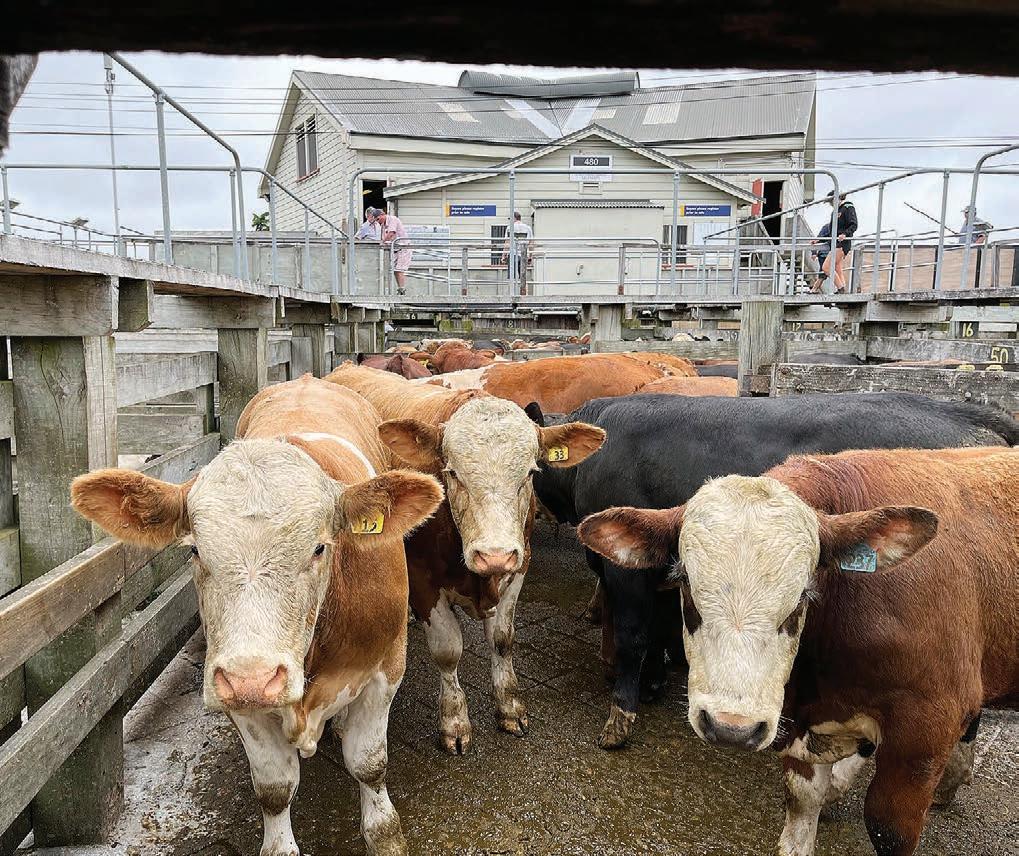
Masterton | December 14 | approximately 4000 sheep $/kg or $/hd
Store blackface lambs, tops 101-105
Store blackface lambs, medium 80-89
Store whiteface lambs, tops 87-95
Store whiteface lambs, medium 78-92
Store lambs, small 55-65
Coalgate | December 8 | 250 cattle, 2346 sheep

$/kg or $/hd
Yearling Hereford-Friesian heifers, 350kg, one line 2.99
Weaner Friesian bulls, 95-153kg 300-475
Prime beef & dairy-beef steers, 465-660kg 3.00-3.09
Prime beef & dairy-beef heifers, 510-630kg 2.90-3.00
Store mixed-sex lambs, small 60-78
Prime ewes, most 74-123
Prime lambs, all 108-169
32 FARMERS WEEKLY – farmersweekly.co.nz – December 19, 2022 Markets 32
farmersweekly.co.nz/everyday farmersweekly.co.nz We’re online NZ’s most trusted source of daily agricultural news and information is now a website.
Yearling Hereford-Friesian steers, 275-324kg 2.97-3.13
Yearling Murray Grey heifers, 271-367kg 2.82-2.86
Prime Hereford-Friesian steers, 553-700kg 2.74-2.87
Prime Angus heifers, 432-583kg 2.70-2.83
Store whiteface wether lambs, good 79-100
Store blackface mixed-sex lambs, good 85-100
Prime ewes, medium-good 80-100
Prime lambs, medium-good 114-128
Yearling Hereford heifers, 300kg 900
Prime beef-cross steers, 635kg 3
Prime bulls, 685kg 2.61
Prime beef-cross heifers, 585kg 2.94
Store lambs, all 75-110
Prime ewes, all 38-100
Prime 2-tooth ewes, good 82-100
Prime lambs, all 116-162
Dairy-Beef Weaner Fairs | December 8 - December 14
Rangiuru | December 14 | 873 cattle
$/kg or $/hd
Weaner Hereford-Friesian steers, 101-116kg 545-645
Prime Hereford-Friesian steers, 508-576kg 2.75-2.99
Prime Hereford bulls, 558-717kg 2.85-3.00
Prime Hereford-Friesian heifers, 450-563kg 2.66-2.80
Boner Friesian heifers, 311-440kg 1.93-2.10
Hogget ewes & lambs, all 65-75
Store male lambs, small to medium 79-88
Store ewe lambs, small to medium 39-85
Store mixed-sex lambs, good 82-114
Prime ewes, medium 65-85
Prime mixed-sex lambs, medium 130-145 Charlton
Weaner steers, tops 430
Weaner bulls, tops 500
Weaner heifers, tops 400
Prime ewes, all 67-140
Prime lambs, all 50-140 Lorneville
Weaner Friesian bulls, 103-116kg 430-490
Weaner Hereford-Friesian heifers, 96-125kg 300-505
Frankton | December 8 | 1496 cattle
$/kg or $/hd
Aut-born weaner dairy-beef heifers 485-580
Weaner Angus-Friesian bulls, 102-138kg 410-615
Weaner Hereford-Friesian bulls, 90-153kg 455-690
Weaner Simmental-Friesian bulls, 99-136kg 500-580
Weaner Friesian bulls, 95-160kg 395-600
Weaner dairy-beef heifers 390-530
Rongotea | December 13
$/kg or $/hd
Weaner Hereford-Friesian steers, 92-160kg 390-550
Weaner Hereford-Friesian bulls, 85-143kg 310-590
Weaner beef-cross bulls, 100-132kg 400-610
Weaner Friesian bulls, 104-178kg 360-530
Temuka | December 8 | 1807 cattle
$/kg or $/hd
Weaner Hereford-Friesian steers, 113-126kg 520-555
Weaner Hereford-Friesian bulls, 116-157kg 460-605
Weaner Angus-Friesian bulls, 110-140kg 470-510
Weaner Hereford-Friesian heifers, 100-129kg 400-575
33 FARMERS WEEKLY – farmersweekly.co.nz – December 19, 2022 Markets 33
Canterbury Park | December 13 | 589 cattle, 5366 sheep $/kg or $/hd
$/kg or $/hd
Temuka | December 12 | 467 cattle, 5843 sheep
|
8 | 120 cattle, 364
$/kg or $/hd
December
sheep
|
$/kg
$/hd
1400
384kg 1080
December 13
or
2-year Friesian bulls, 500kg
Yearling Friesian bulls,
See what sold today REPORTS EYE LIVESTOCK Results from the saleyards, including per kilo prices for store lambs, delivered straight to your inbox. Subscribe from only $35* per month agrihq.co.nz/livestock-reports * Prices are GST exclusive
Sheep Meat
34 FARMERS WEEKLY – farmersweekly.co.nz – December 19, 2022 Markets 34 AgriHQ market trends
Slaughter price (NZ$/kgCW) Last week Last year
Export
Wool (NZ$/kg clean) Two weeks ago Last year Coarse crossbred ind. 2.66 2.64 37 micron ewe - 2.65 30 micron lamb -Beef Slaughter price (NZ$/kgCW) Last week Last year
Island P2 steer
6.05 6.25
5.90 6.30
4.40 4.80
5.85
5.60
4.30 4.65 Export markets
US imported 95CL bull 7.81 10.29 US domestic 90CL cow 8.29 8.90
Slaughter price (NZ$/kgCW) Last week Last year North Island AP stag (60kg) 8.90 6.80 South Island AP stag (60kg) 9.00 6.80 Fertiliser NZ average (NZ$/tonne) Last week Last year DAP 1794 1308 Super 509 368 Urea 1340 1190 Urea (Coated) 1289Exports NZ Log Exports (thous. Tonnes) Oct Last year China 1,697,452 1,719,378 Rest of world 175,899 233,845 Carbon price (NZ$/tonne) Last week Last year NZU 83.5 68.2 Cattle Sheep Deer Fertiliser Forestry Steer slaughter price ($/kgCW) Lamb slaughter price ($/kgCW) NZ lamb and mutton slaughter (thous. head) Stag Slaughter price ($/kgCW) NZ cattle slaughter (thous. head) Data provided by SHEEP & BEEF REPORT Subscribe from only $100* per month agrihq.co.nz/our-industry-reports Track supply demand& Every month, receive in-depth analysis of key trade data, important nancial markets, and critical market trends here and around the world. * Prices are GST exclusive 5.5 6.0 6.5 7.0 Dec Feb Apr Jun Aug Oct North Island South Island 7.5 8.0 8.5 9.0 9.5 10.0 Dec Feb Apr Jun Aug Oct North Island South Island 0 10 20 30 40 50 60 70 03-Sep 03-Oct 03-Nov 03-Dec 03-Jan 03-Feb 5-yr ave This year Last year 0 200 400 600 800 03-Sep 03-Oct 03-Nov 03-Dec 03-Jan 03-Feb 5-yr Ave This year Last year 6.5 7.0 7.5 8.0 8.5 9.0 9.5 Dec Feb Apr Jun Aug Oct North Island South Island
North Island lamb (18kg) 7.65 9.15 North Island mutton (25kg) 4.20 6.40 South Island lamb (18kg) 7.60 8.90 South Island mutton (25kg) 4.00 6.40
markets (NZ$/kg) China lamb aps 9.52 13.96
North
(300kg)
North Island M2 bull (300kg)
North Island M cow (200kg)
South Island P2 steer (300kg)
6.10 South Island M2 bull (300kg)
6.00 South Island M cow (200kg)
(NZ$/kg)
Venison
NZX market trends
Close of market
Listed Agri shares
Company Close YTD HighYTD Low
ArborGen Holdings Limited 0.20.270.199
The a2 Milk Company Limited 7.347.344.2
Comvita Limited 3.153.782.98
Delegat Group Limited 1014.459.83
Fonterra Shareholders' Fund (NS) 3.233.782.75
Foley Wines Limited 1.311.571.3
Greenfern Industries Limited 0.0760.250.069
Livestock Improvement Corporation Ltd (NS) 1.31.731.3

Marlborough Wine Estates Group Limited 0.1660.260.155
NZ King Salmon Investments Limited 0.2251.380.187
PGG Wrightson Limited 4.25.763.9
Rua Bioscience Limited 0.2450.530.215
Sanford Limited (NS) 4.295.074.03
Scales Corporation Limited 4.055.594.05
35 FARMERS WEEKLY – farmersweekly.co.nz – December 19, 2022 Markets 35
Grain Dairy Dairy Futures (US$/t) Nearest contract Last price* Prior week4 weeks prior WMP 346033953410 SMP 312531253320 AMF 587557505650 Butter 485050254900 Milk Price 8.978.829.02 * price as at close of business on Wednesday Data provided by Canterbury feed wheat ($/tonne) 5pm, Wednesday Milk price futures ($/kgMS) Canterbury feed barley ($/tonne) Waikato palm kernel ($/tonne) WMP futures - vs four weeks ago (US$/tonne) S&P/NZX 10 INDEX 11424 S&P/FW PRIMARY SECTOR EQUITY 12739 S&P/NZX 50 INDEX 11585 Upskill with an online course For shearers by shearers agricademy.co.nz/womolife 7.0 8.0 9.0 10.0 11.0 DecFeb AprJunAug Oct Dec Sep-2023 Sep-2024 350 400 450 500 550 600 650 700 DecFeb AprJunAug Oct Dec 350 400 450 500 550 600 650 700 DecFeb AprJunAug Oct Dec 3350 3400 3450 3500 3550 3600 3650 3700 Jan Feb Mar Apr May Jun Latest price 4 weeks ago 300 350 400 450 500 550 DecFeb AprJunAug Oct Dec
Weather
not the heat, it’s the humidity
THE weather mostly played ball for the first half of last week compared to our last outlook, then changed tack a little in the last three days. Monday was settled with high pressure bringing mainly dry weather.
Tuesday was quite settled, too, with afternoon showers for some North Island regions bringing the odd heavy fall. Wednesday didn’t change much for the South Island but the North Island saw an increase in easterlies and rain for the upper North Island with a heavy fall or two.


Thursday saw rain for much of the North Island, and afternoon showers for the South Island about the Main Divide.

The humid conditions that have plagued the North Island spread further south on Friday. Afternoon showers cropped up for inland parts of both Islands with a few further thunderstorms and downpours.
A front slid into central New Zealand from the Tasman on Saturday bringing rain, and this continued eastwards on Sunday over the North Island bringing further unstable wet weather.
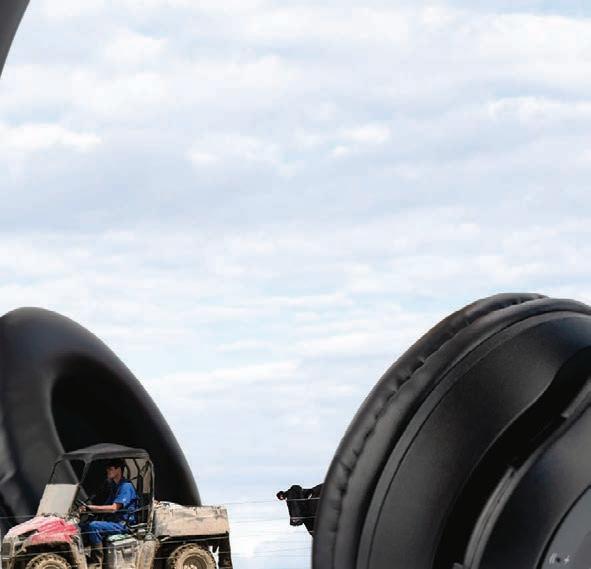
The North Island finally gets a breather on Monday this week as a front clears away to the northeast. The South Island has a few showers, mainly in the west and south.
A cold front pushes northwards on Tuesday bringing rain to all of the South
ruralweather.co.nz





Soil moisture Temperature


Deficit 9am 13/12/2022
Island but the West Coast starts to clear up. The North Island has wet weather in the west with more thunderstorms possible. It’ll be dry in the east but showers eventually spread northwards later. Humidity is finally going to go down over Tuesday
Last 15 days rain
Observed rainfall 9am 28/11/2022 to 9am 13/12/2022
and Wednesday. Showers for much of the country on Wednesday thanks to a southwest airflow. Cold upper air means more thunderstorms could develop but this time with hail too, especially for the eastern South Island.
Observed mean temperature 9am 28/11/2022 to 9am 13/12/2022

On Thursday a high looks to move in from the Tasman Sea.
Friday, Saturday and Christmas Day, would you believe, look to be settled and mainly dry with a large high covering the country.
RaboTalk ourGrowing future Listen to the new RaboTalk ‘Growing our future’ podcast Making sense of the changing farming environment. Search RaboTalk podcast or visit rabobank.co.nz
TRACTA65458 36
Fresh perspectives, robust discussions, informed opinions We bring them to you
It’s




















1 THANK Page 1 inside Vol 20 No 49, December 19, 2022 View online at farmersweekly.co.nz $4.95 Incl GST
As the team here at AgriHQ worked on this edition, we were reminded of how much we’ve enjoyed another year collecting and sharing your news, and the stories that help inform and lead the conversations that matter. We feel the purpose of that responsibility greatly, so thank you for trusting us to do it.
As the team here at AgriHQ worked on this edition, we were reminded of how much we’ve enjoyed another year collecting and sharing your news, and the stories that help inform and lead the conversations that matter.
We feel the purpose of that responsibility greatly, so thank you for trusting us to do it.

There’s been some anger and frustration with Government and industry leadership this year, and at times with the messengers too - yes, we’ve had our critics.
WELCOME TO OUR LAND CHAMPIONS EDITION, WHERE WE CELEBRATE PEOPLE
There’s been some anger and frustration with Government and industry leadership this year, and at times with the messengers too - yes, we’ve had our critics.
The one thing we all agree on is we want solutions, and over the decades the farming community has proven itself to be very good at creating brilliant solutions that have served the country exceptionally well.
WELCOME TO OUR LAND CHAMPIONS EDITION, WHERE WE CELEBRATE PEOPLE
Real solutions form when we take time to ask, listen, talk and resolve to work together.
The one thing we all agree on is we want solutions, and over the decades the farming community has proven itself to be very good at creating brilliant solutions that have served the country exceptionally well. Real solutions form when we take time to ask, listen, talk and resolve to work together.
My Dad is 94. He’s a good listener. That’s a picture of him on the front page a few years ago in a pastel drawing by my Mum. When talking with Dad I have to speak a little louder these days, but he’s still my number one sounding board.
My Dad is 94. He’s a good listener. That’s a picture of him on the front page a few years ago in a pastel drawing by my Mum. When talking with Dad I have to speak a little louder these days, but he’s still my number one sounding board.
WHO INSPIRE US WITH THEIR STORIES OF
WHO INSPIRE US WITH THEIR STORIES OF
Our team at AgriHQ are great listeners too. Our business model depends upon it. We filter through what we’re told and what we observe, and then we deliver information and insights to you, our readers and clients.
Our team at AgriHQ are great listeners too. Our business model depends upon it. We filter through what we’re told and what we observe, and then we deliver information and insights to you, our readers and clients.
Thank you for reading and working with us again this year. Next year we’ll continue to inform the conversations we all need to have and participate in.
Thank you for reading and working with us again this year. Next year we’ll continue to inform the conversations we all need to have and participate in.
ENTERPRISE, INNOVATION AND SUCCESS.
ENTERPRISE, INNOVATION AND SUCCESS.
By doing so, I trust we’re doing our bit to help you, and our agricultural community, create solutions together. Thank you for all you do for our primary sector - we’re proud to support you.
By doing so, I trust we’re doing our bit to help you, and our agricultural community, create solutions together. Thank you for all you do for our primary sector - we’re proud to support you. Have a great summer and all the best for 2023.
Have a great summer and all the best for 2023.
Dean Williamson. CEO and publisher, AgriHQ.
Dean Williamson. CEO and publisher, AgriHQ.
















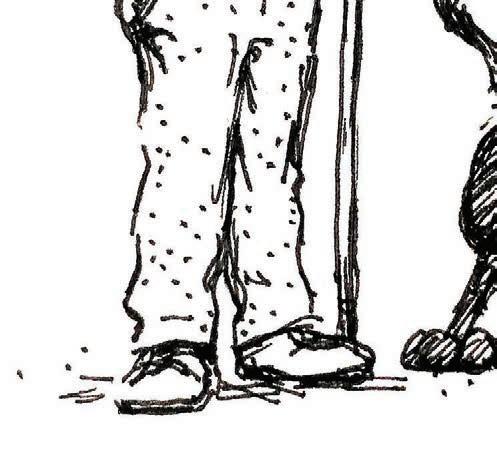






Let’s skip into summer and do it all again in 2023! Thank you for your support



There are 366,807 people who go to work in the primary sector every day. - Source MPI, 2019 Here’s the perfect gift for every one of them! Get exclusive daily news,
special offers and discounts.
weekly analysis, competitions and prizes,
As a subscriber of Farmers Weekly ‘Everyday’ you will receive:
• Farmers Weekly Today – the exclusive daily newsletter of Farmers Weekly, featuring editorial commentary from Bryan Gibson and the day’s top news.
• Farmers Weekly Analysis – our exclusive weekly newsletter containing commentary and insight from the team of AgriHQ analysts.
• Prizes – subscriber-only competitions where you can win, win, win!
GST Subscribe to Farmers Weekly Only $5 per month* ‘EVERYDAY’
• Savings – special offers and discounts from our network of partners, shared only with Farmers Weekly ‘Everyday’ subscribers. To sign up for a 12-month subscription, simply scan the QR code or go to www.farmersweekly.co.nz/everyday and fill out the form and we’ll be in touch to get you started *plus

















































































































































































































































































































 Awards Partner
By Farmers. For Farmers™
Awards Partner
By Farmers. For Farmers™


 Ron Schroeder Deer agent
Ron Schroeder Deer agent































































 Wallace PEOPLE Tourism
Wallace PEOPLE Tourism







































































































































































































































